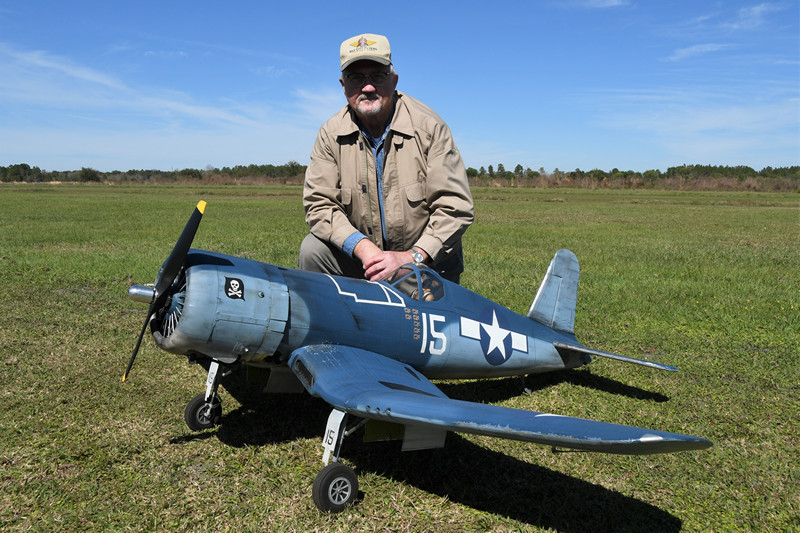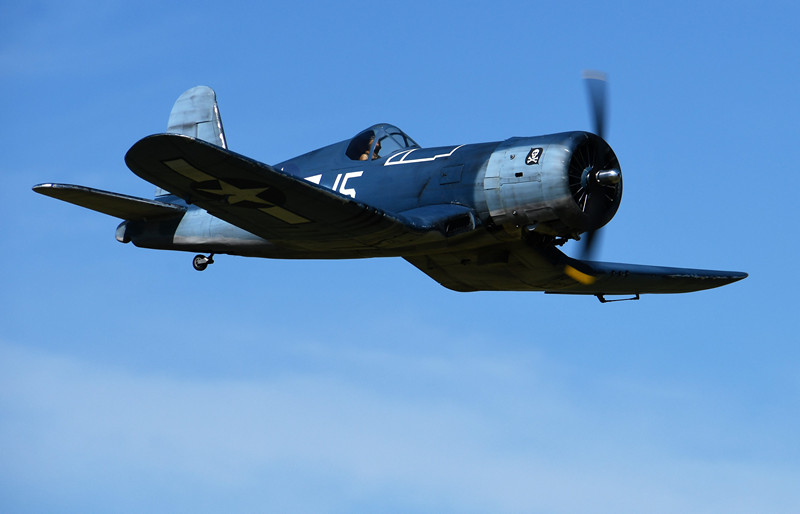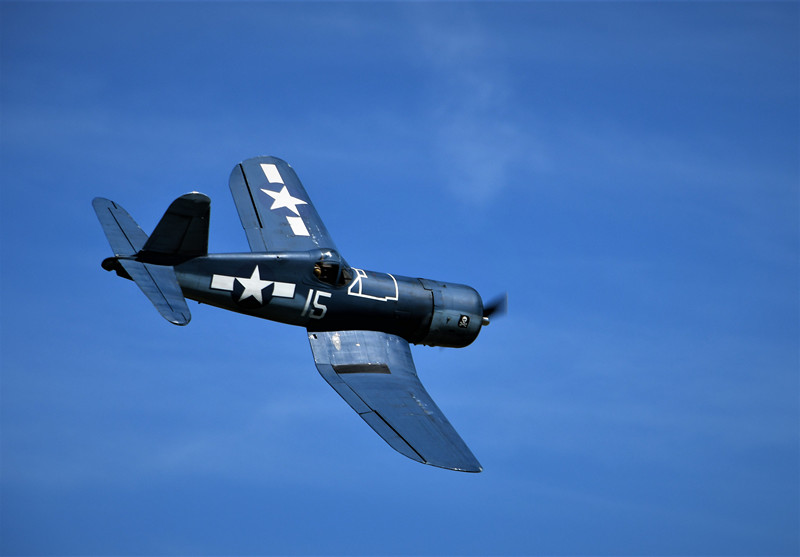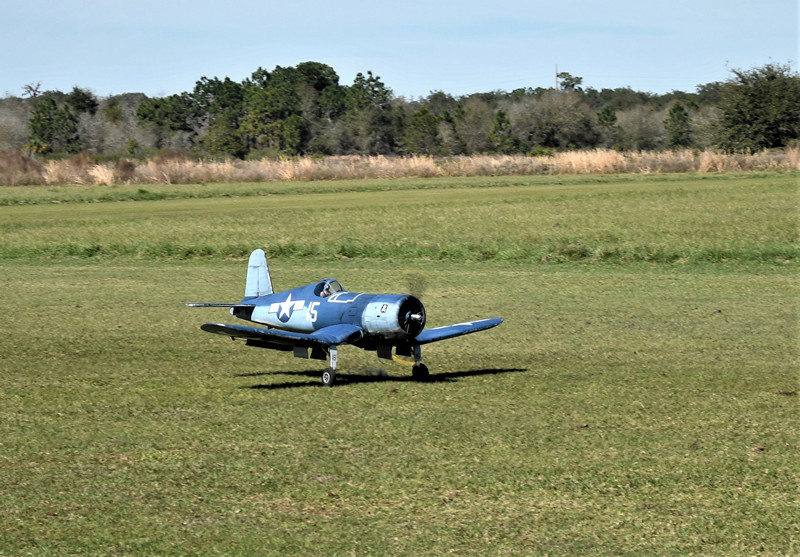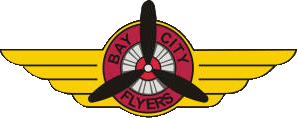This page is for posting recent pictures of BCF members and their planes.
Members wishing to have their photos posted should provide their digital images to the web manager. Please contact any of the Club’s officers to make arrangements.
Don Mriscin
Don Mriscin and his PT biplane:
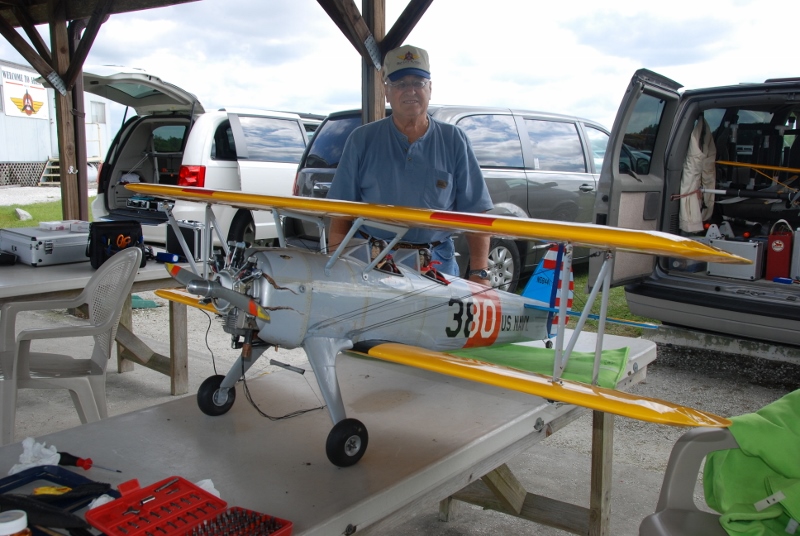
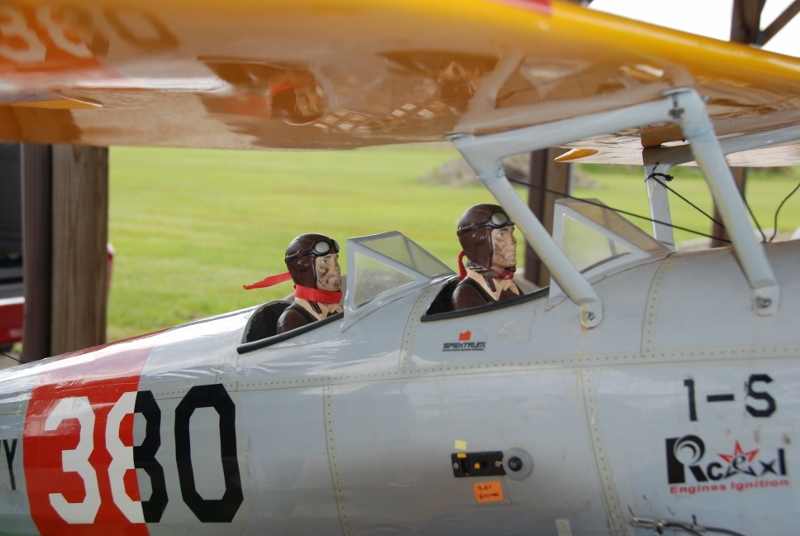
Ron Czikowsky
Ron Czikowsky and his AJ Aircraft 123″ Laser 230z IMAC-competition aerobatic plane, powered by a DA-200L 4-cylinder engine, and using a Jeti DS-24 radio system for guidance:
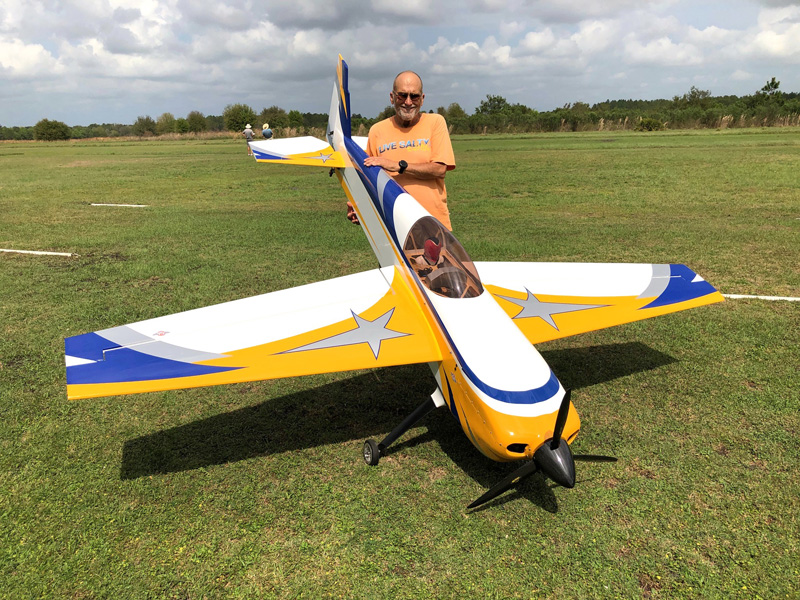
….and one of his other aerobatic planes, a 120″ wingspan Carden Pro:
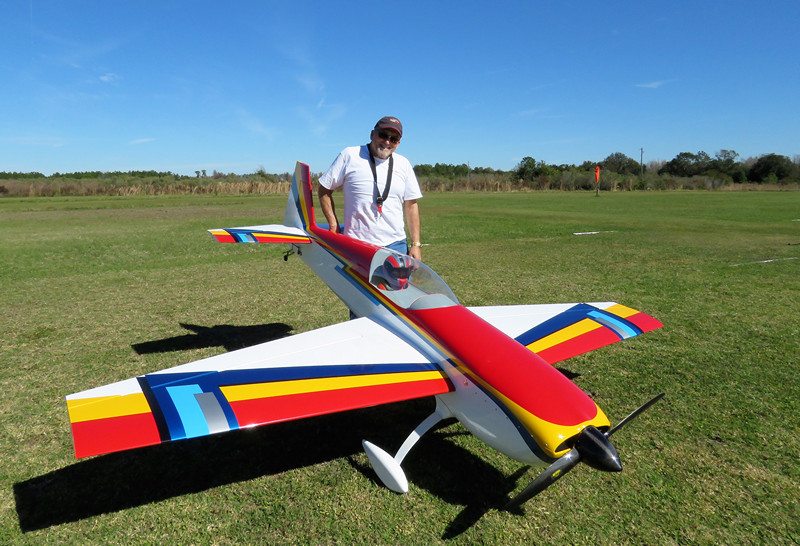
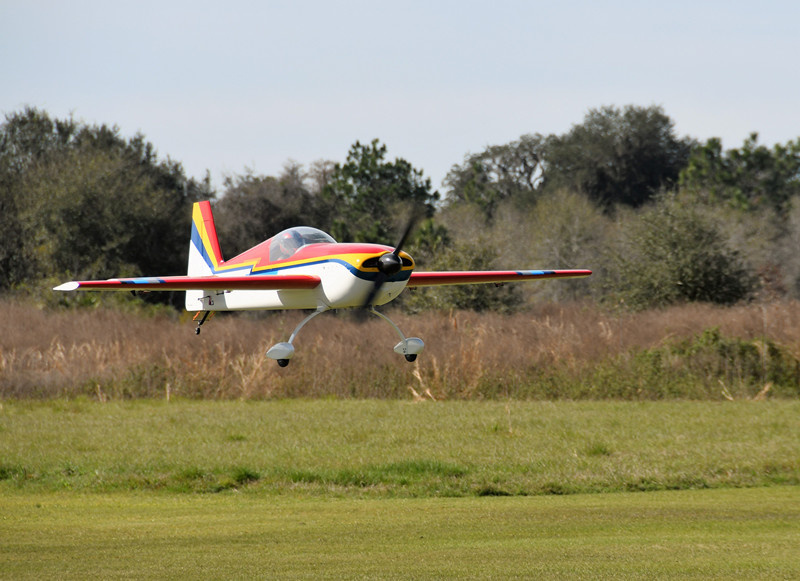
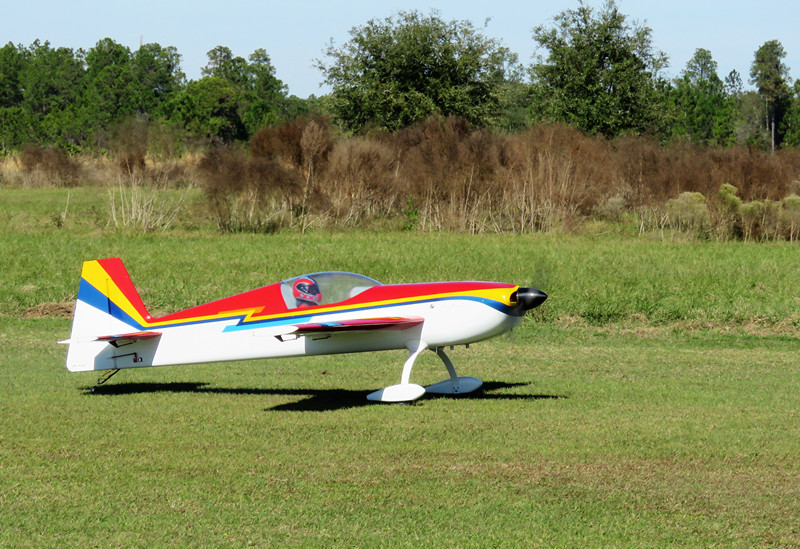
Joe Barzyz
Joe Barzyz and his electric ducted-fan Navy jet:
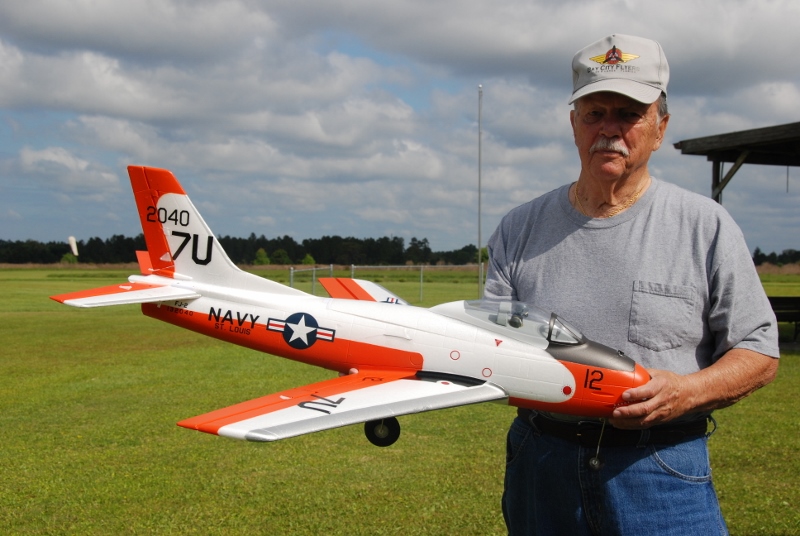
Bill McCallie
Bill McCallie and his Japanese Zero fighter plane:
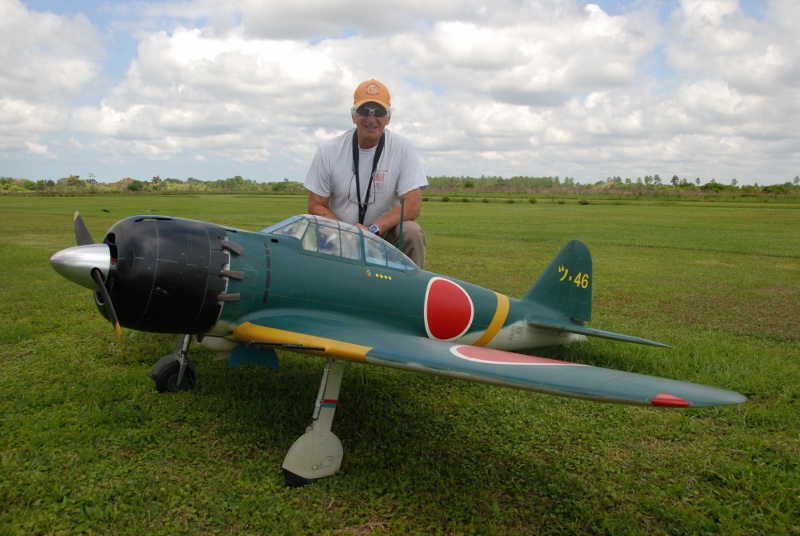
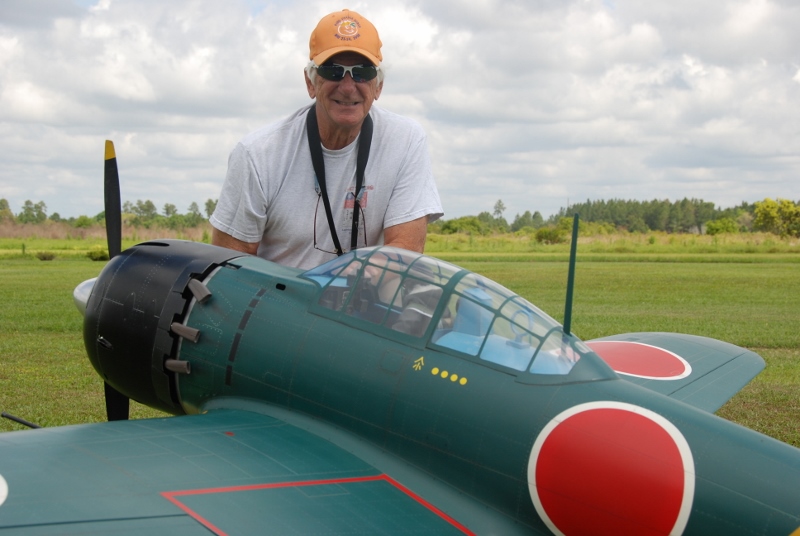
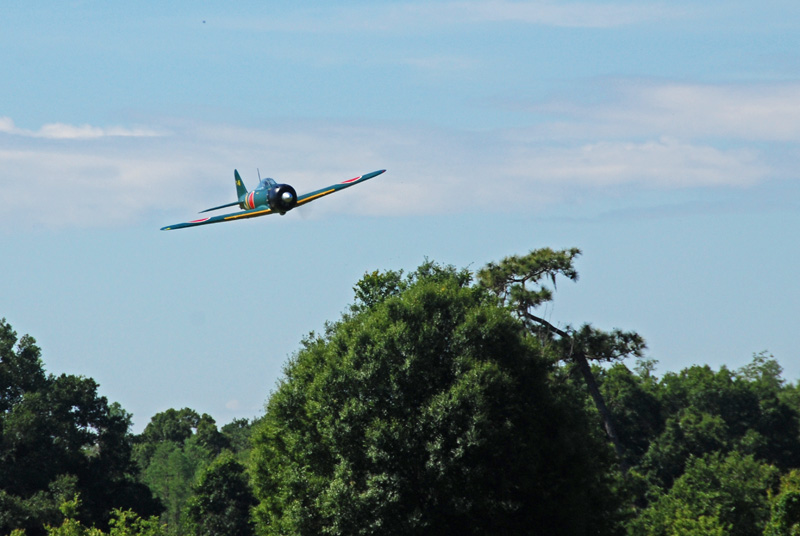
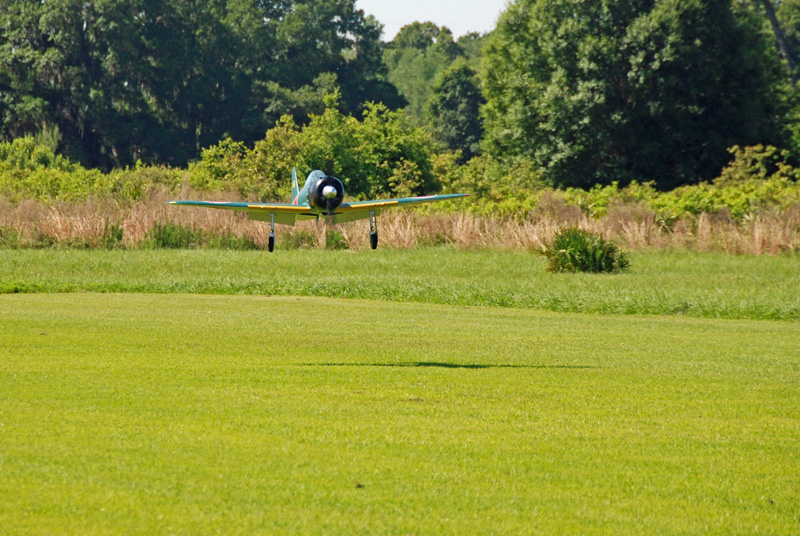
…..and his F6F Hellcat:
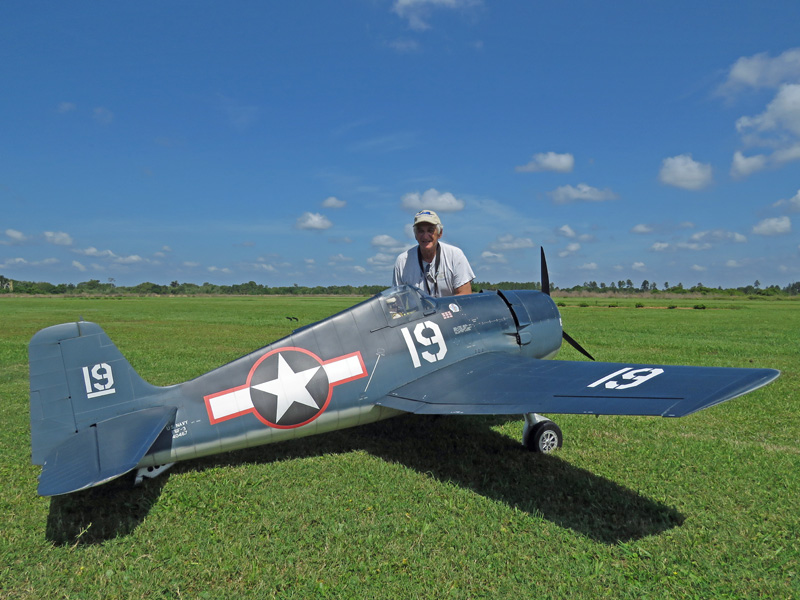
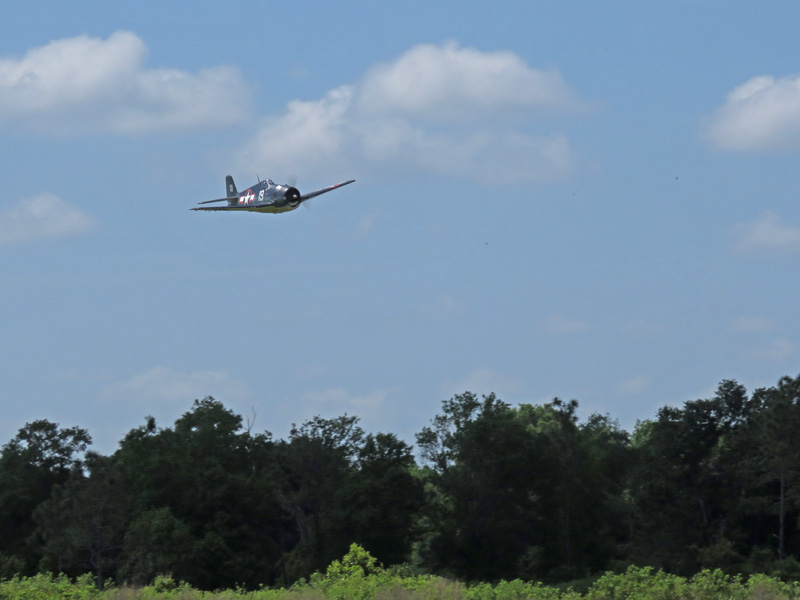
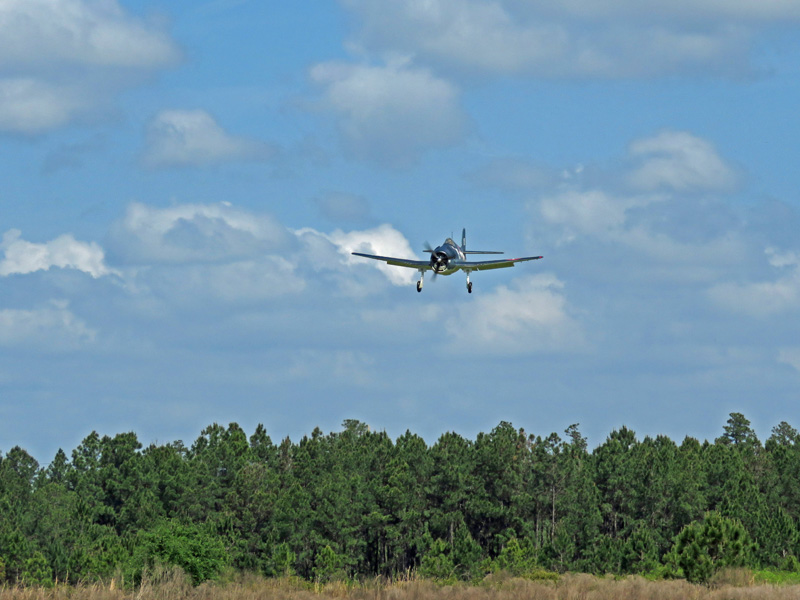
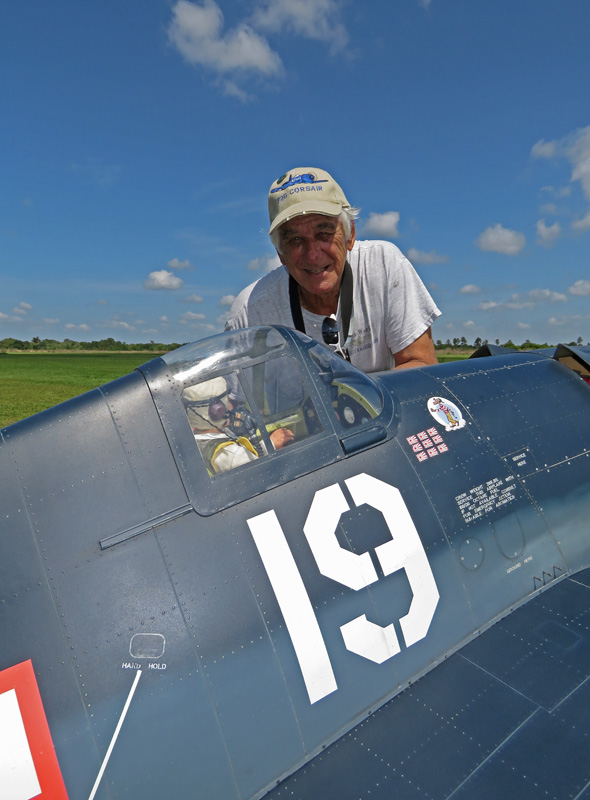
….and his Spitfire fighter plane:
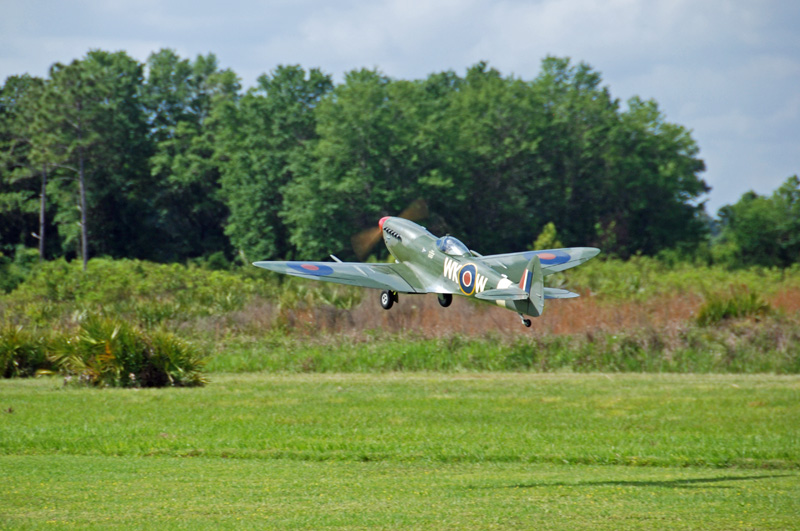
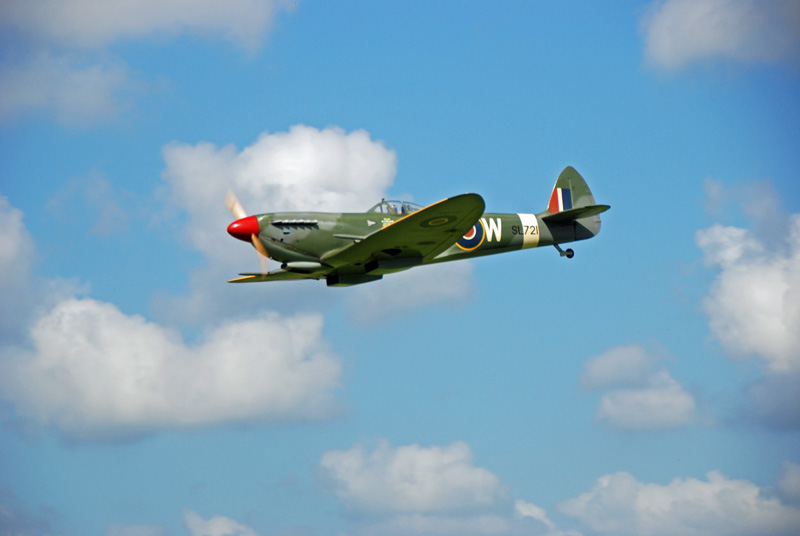
….. and his WACO SRE (and buddy Gordon):
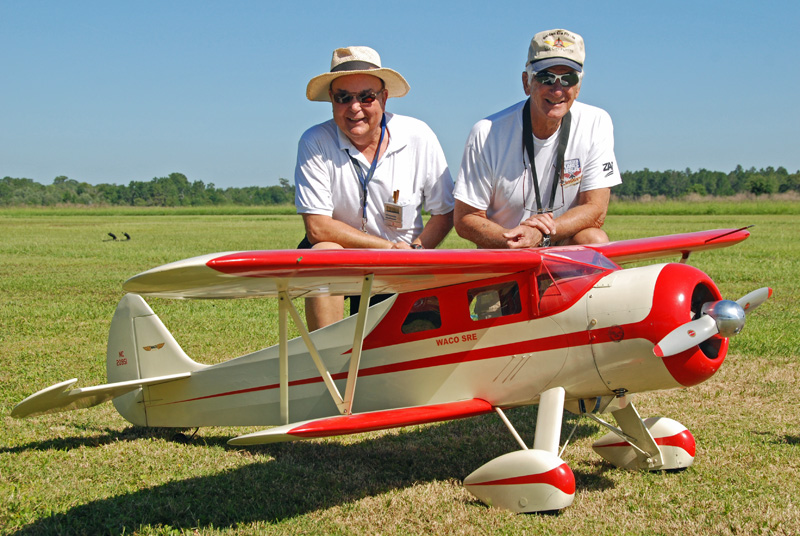
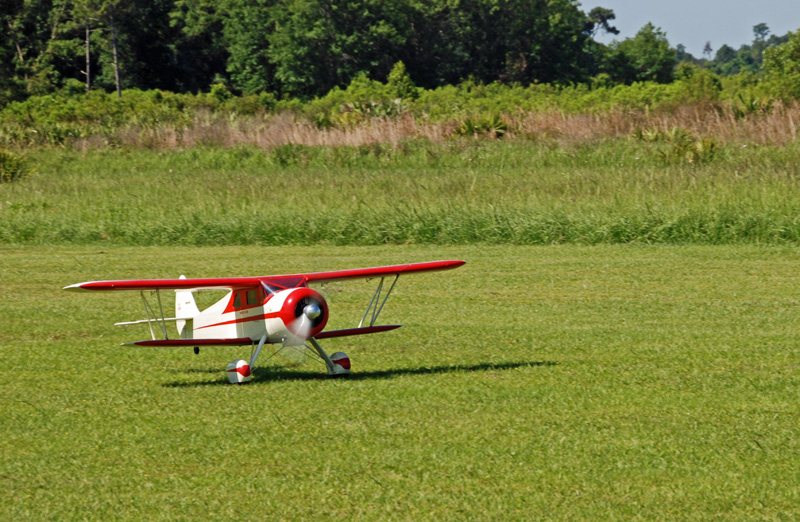
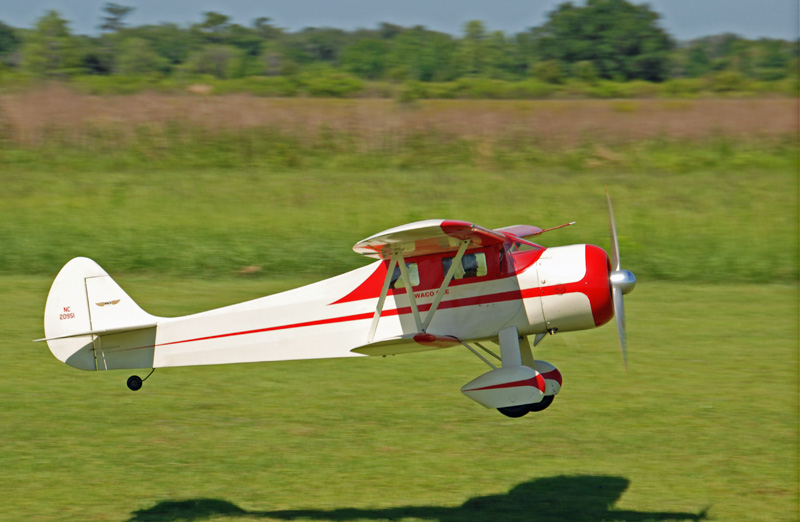
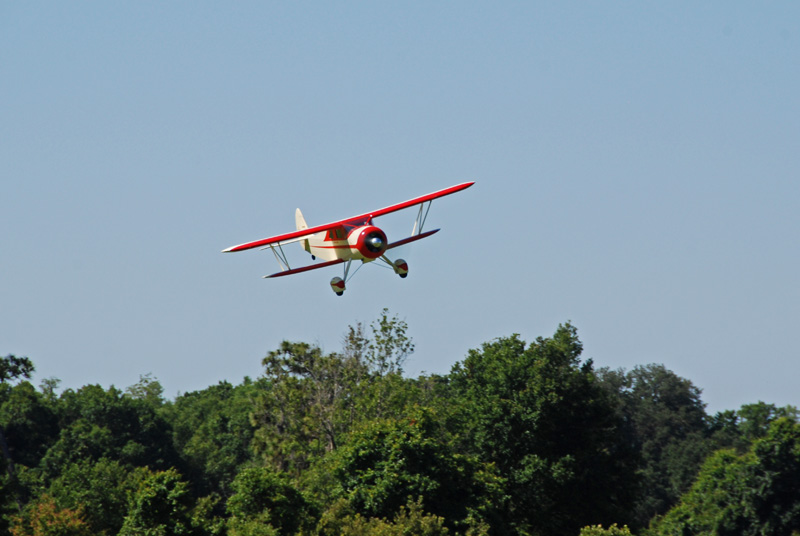
….. and his Hawker Tempest warbird:
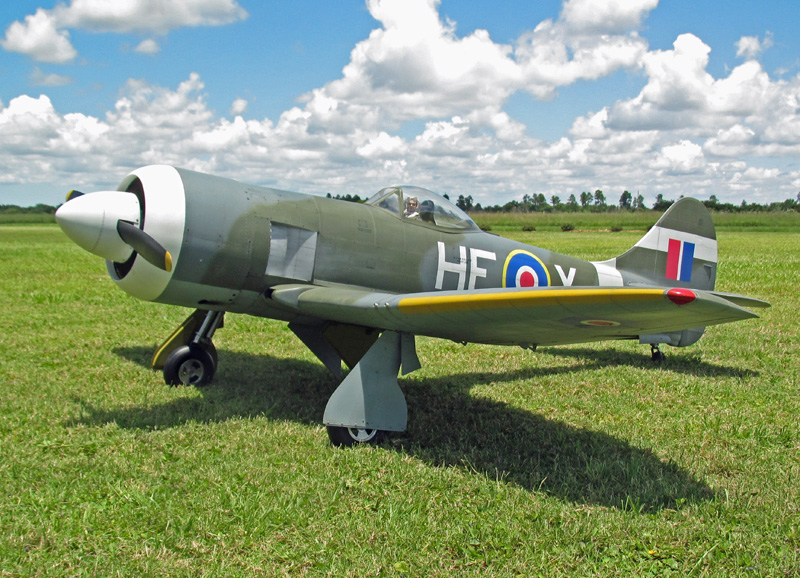
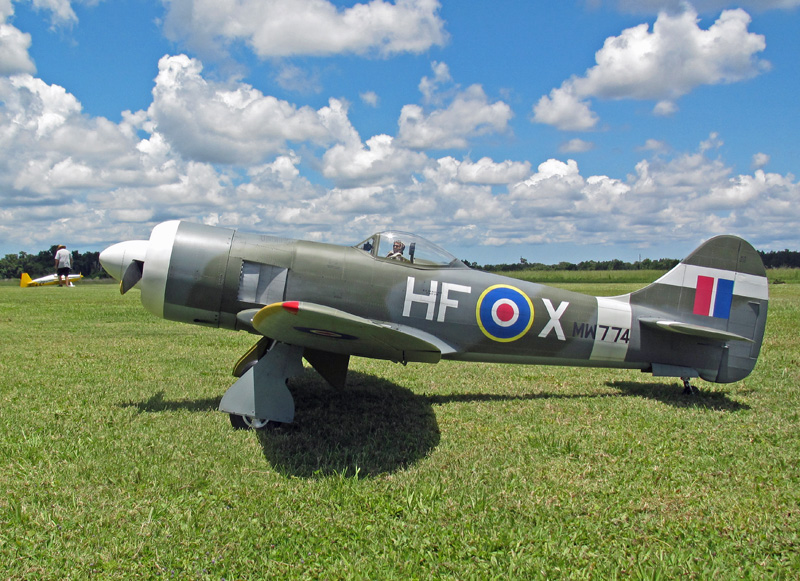
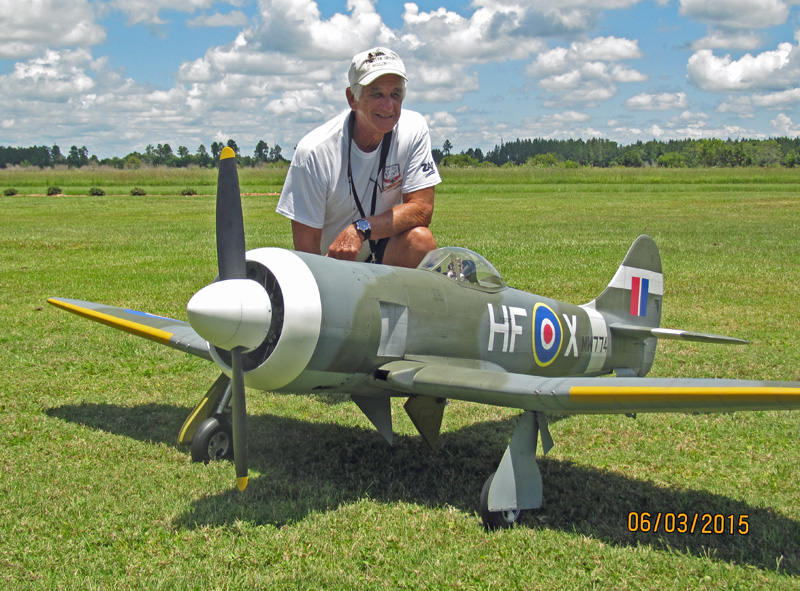
….. and his Corsair warbird:
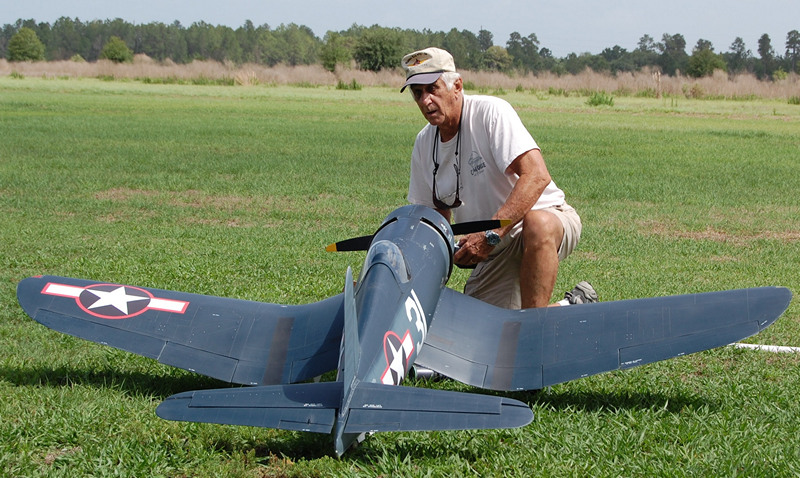
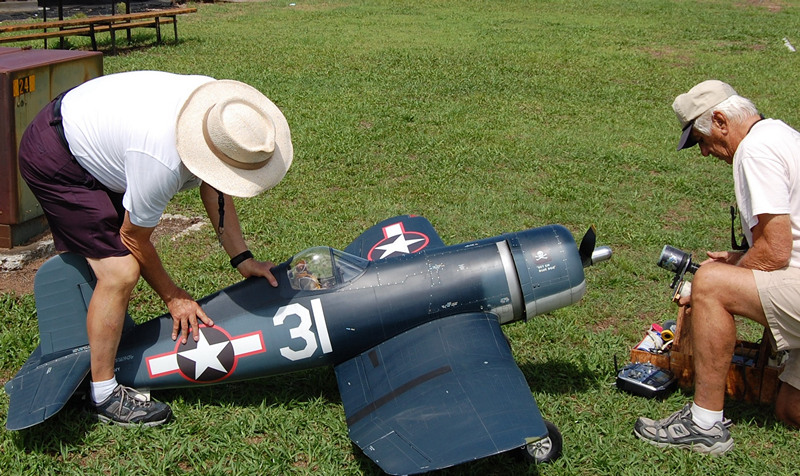
….. and his P-47 bubble-top warbird:
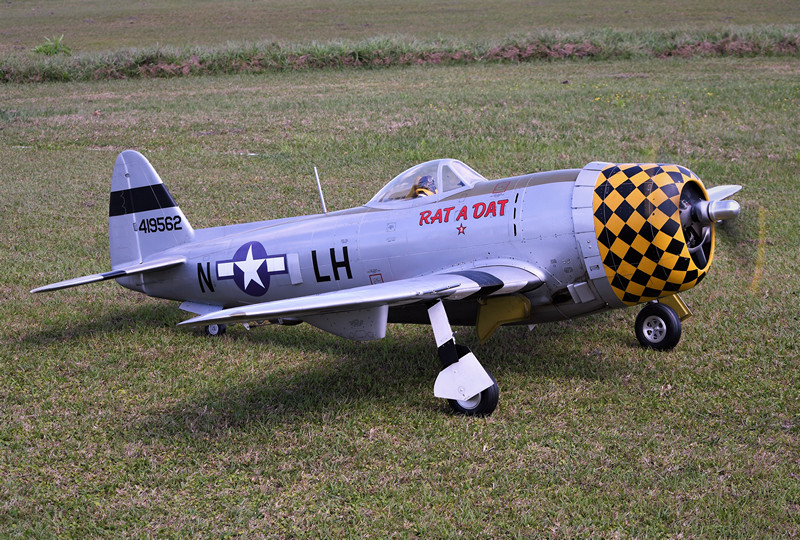
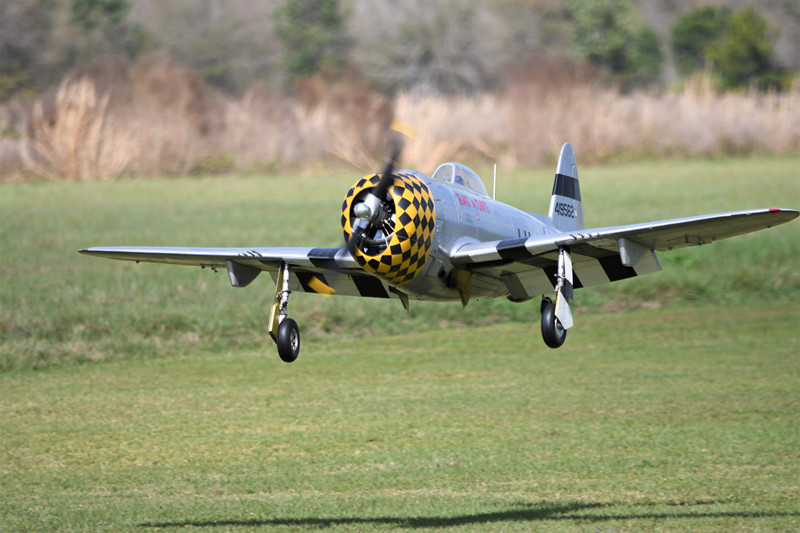
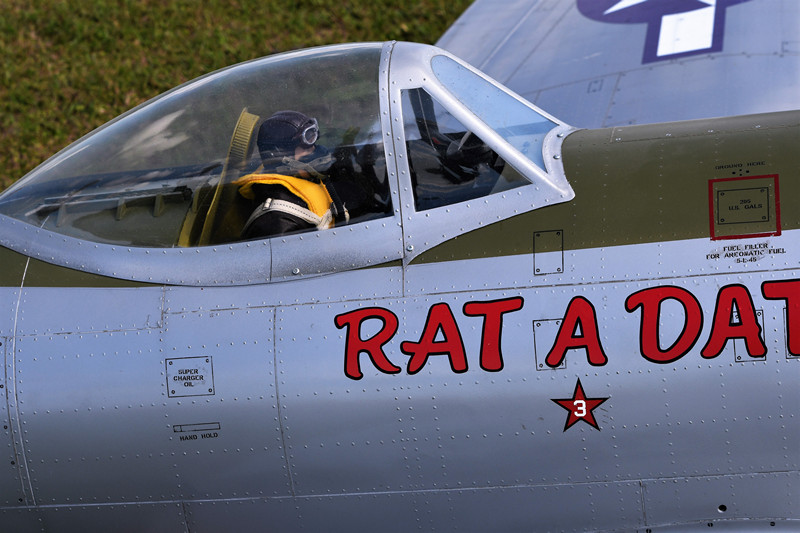
….. and his Heinkel He100 warbird, scratch-built based on Jerry Bates plans, with a wingspan of 102″ and powered by a DA-85 engine:
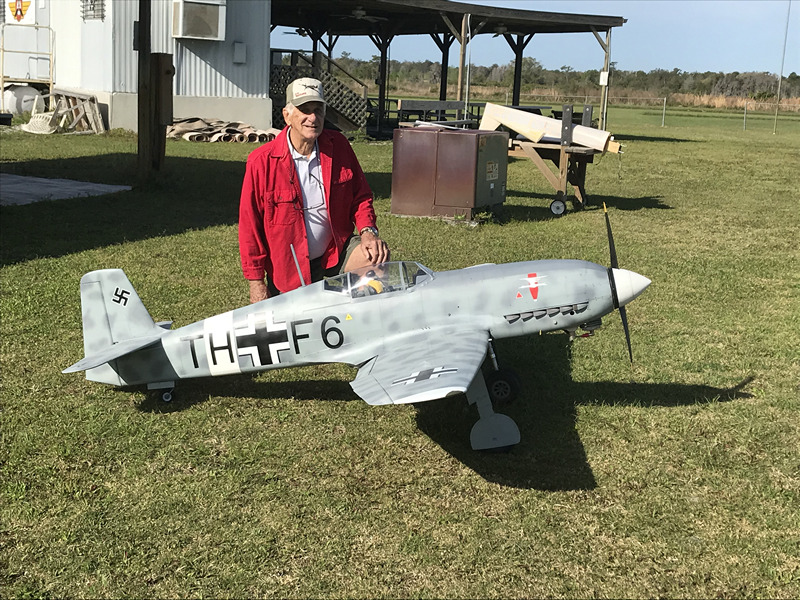
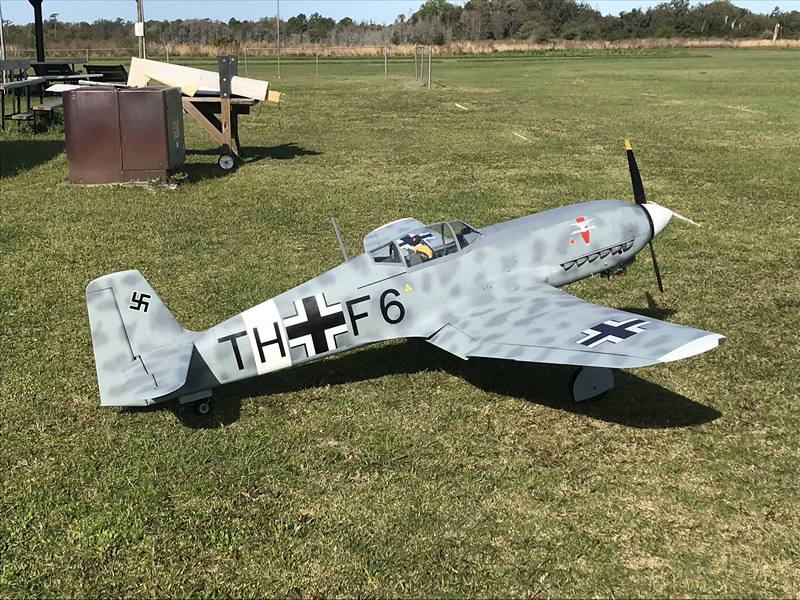
Gordon McLean
Gordon McLean and his P51 Mustang “Old Crow”:
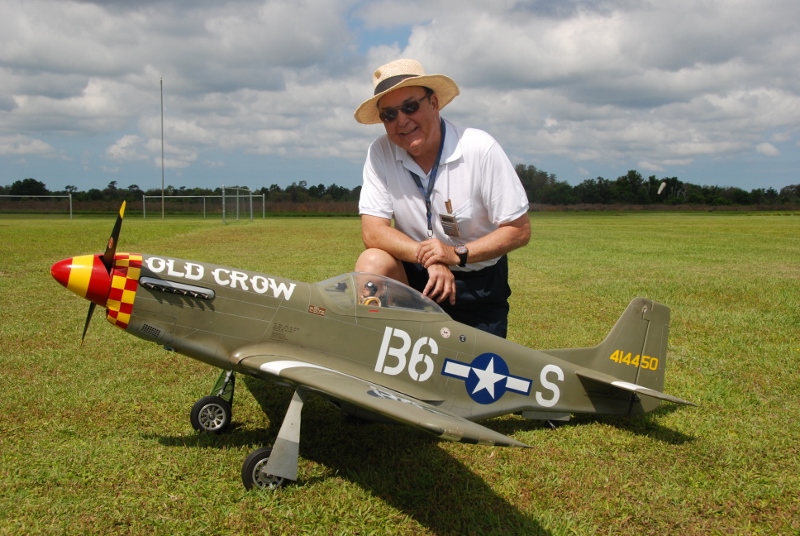
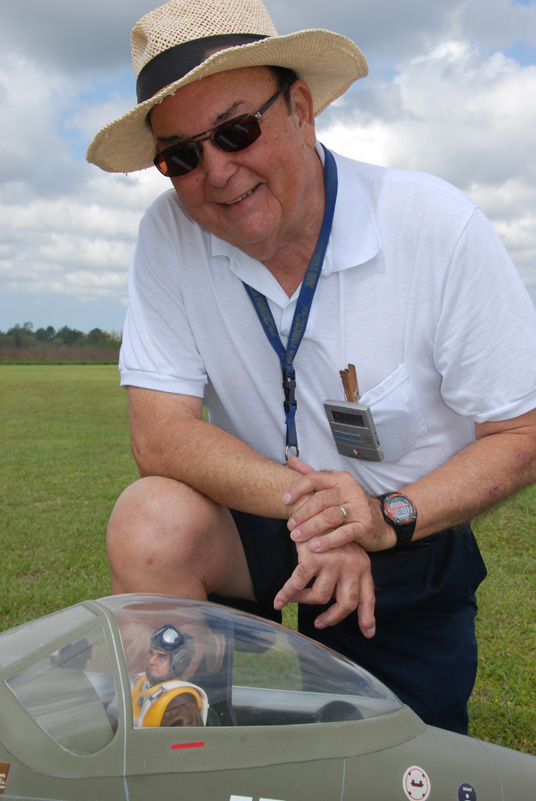
….. and his 3.1m Sukhoi, powered by DA-170. Buddy Giovanni also has similar plane (but no wheel pants :-).
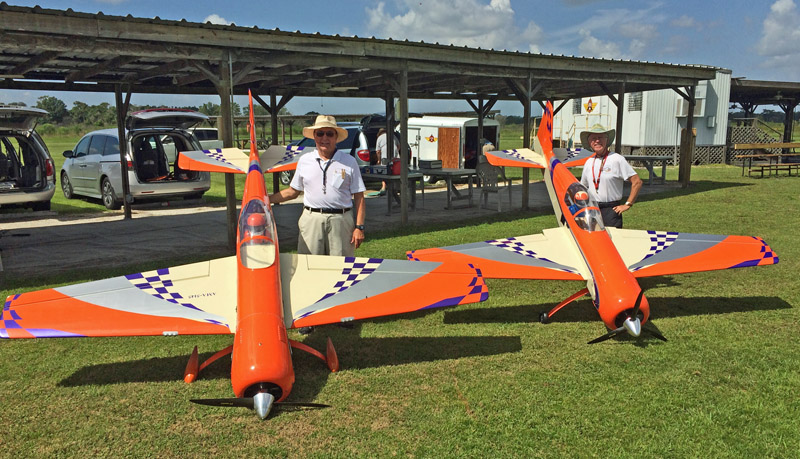
Bruce Baltera
Bruce Baltera and his 40% CARF Extra 260 aerobatic plane, powered by a GP-176 engine:
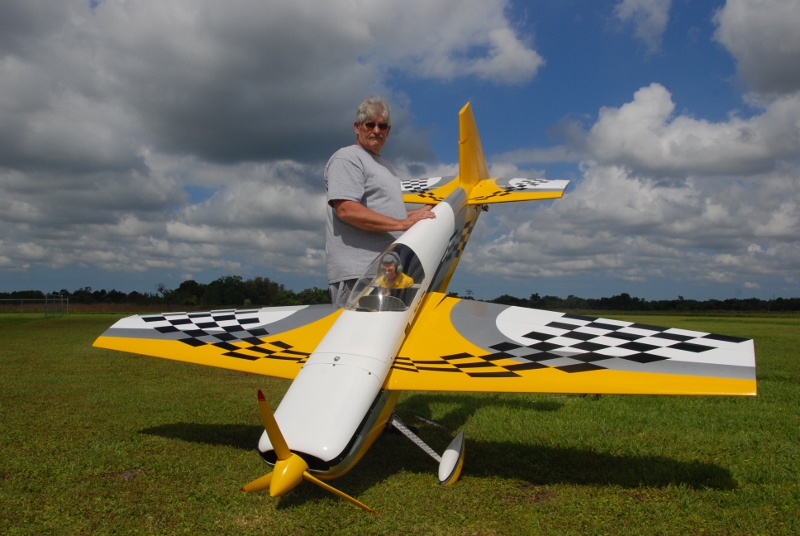
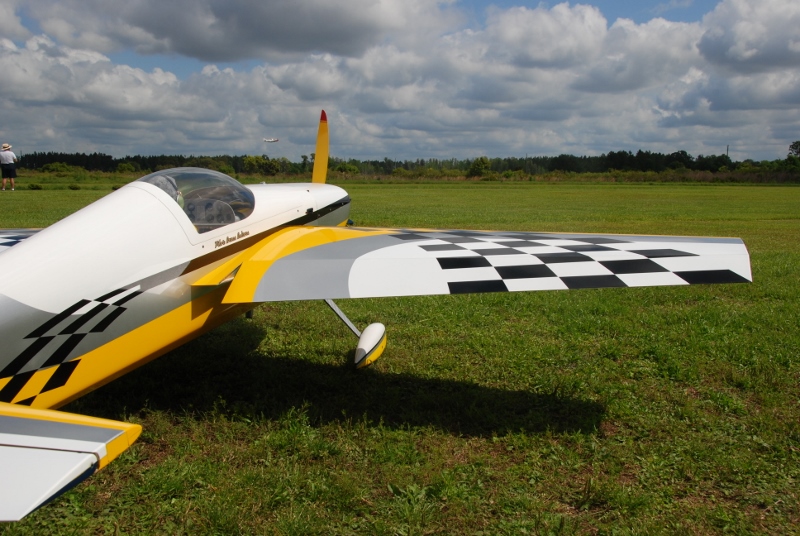
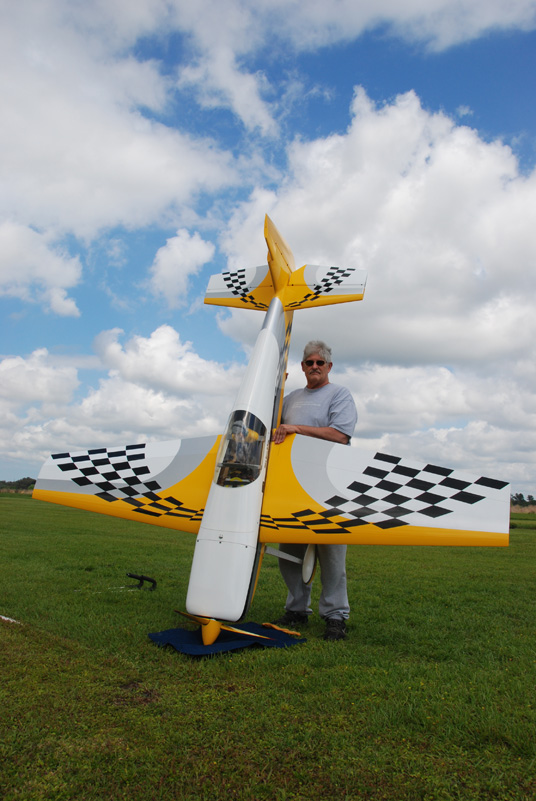
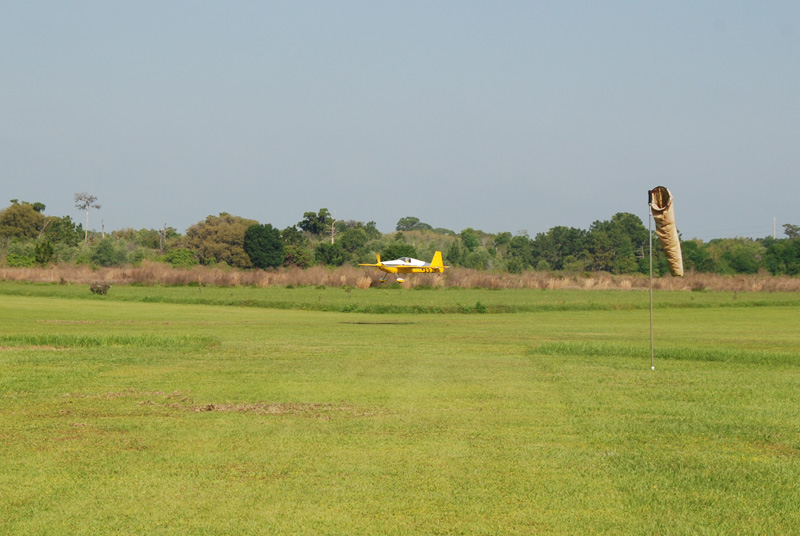
Dan Eastburn
Dan Eastburn and his P47 fighter plane “TarHeel Hal”:
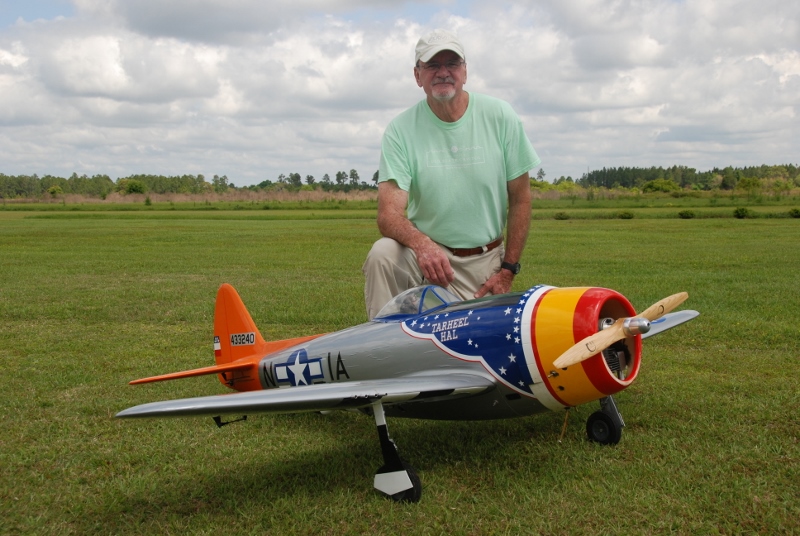
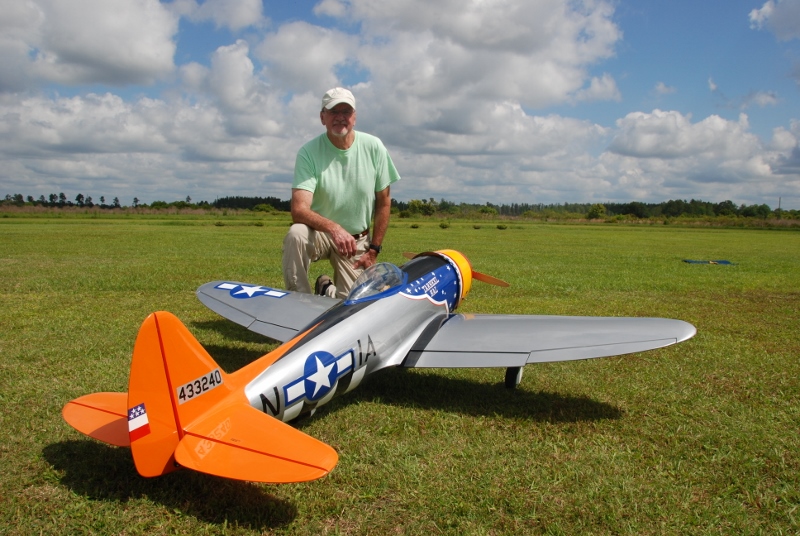
…. and his Extra 300 LX aerobatic plane:
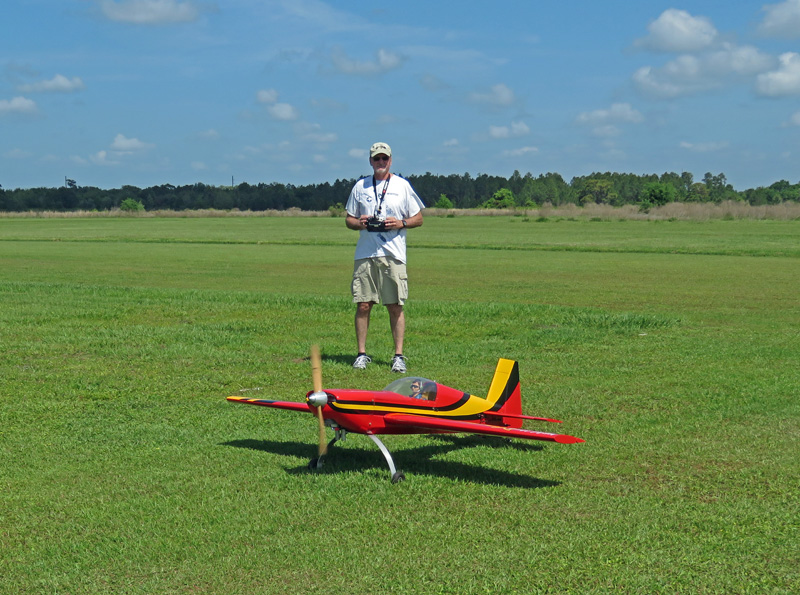
…. and his racer. The red airplane is a Great Planes Cosmic Wind Lil Tony. It has a 63 inch wingspan and is powered by a Saito 100. It weighs about 8 pounds. It is considered a giant scale airplane because the full-scale airplane had only an 18 foot 11 inch wingspan. The full scale plane was a racer in the late 1940’s. Consistently, this Lil Toni is pretty quick because of the extremely thin wings and the very aerodynamic shape of the fuselage:
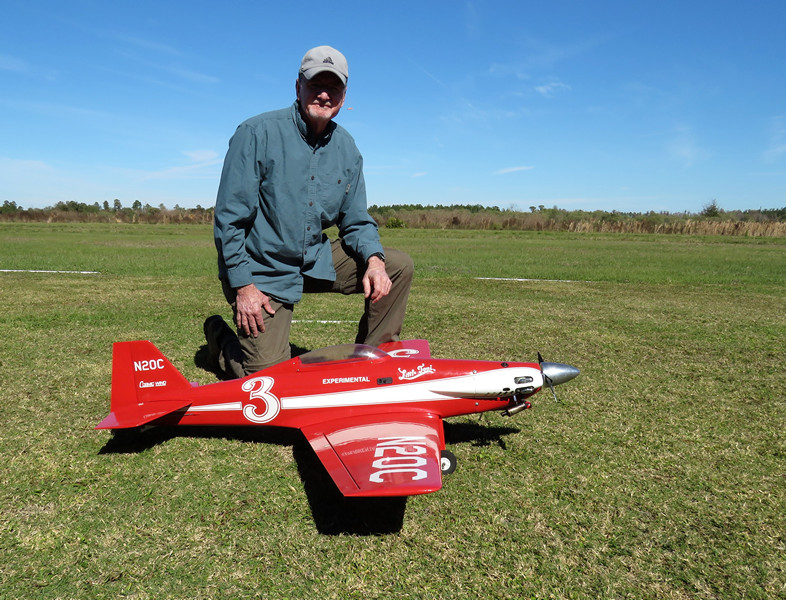
Greg Baggerly
Greg Baggerly and his IMAC-competition 37% Krill Extra LX aerobatic plane, powered by a DA-170 2-cylinder engine, and using a Jeti DS-24 radio system for guidance:
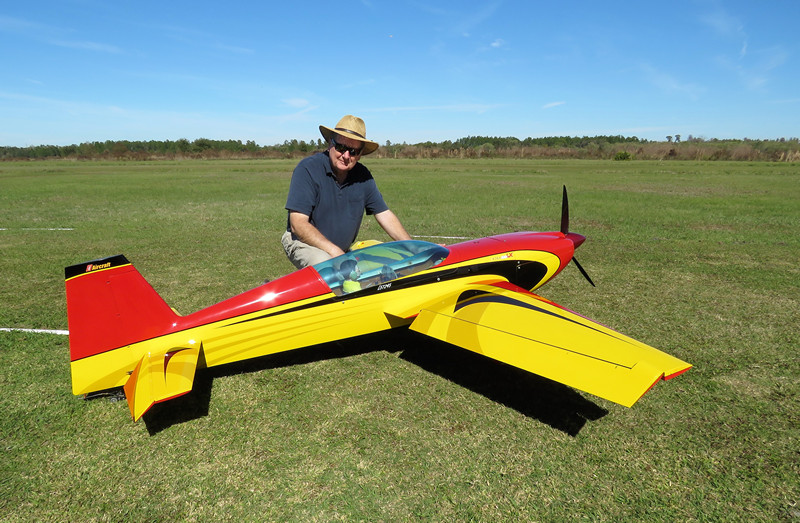
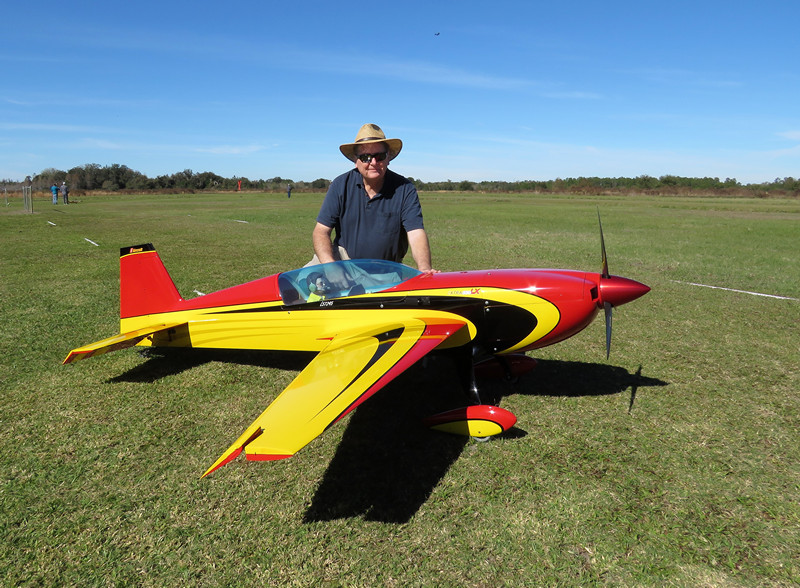
Lance Murphy
Lance Murphy and his IMAC-competition Extreme Flight 125″-wingspan Extra 300 EXP aerobatic plane, powered by a DA-200L 4-cylinder engine, using a Futaba T18MZ radio system for guidance:
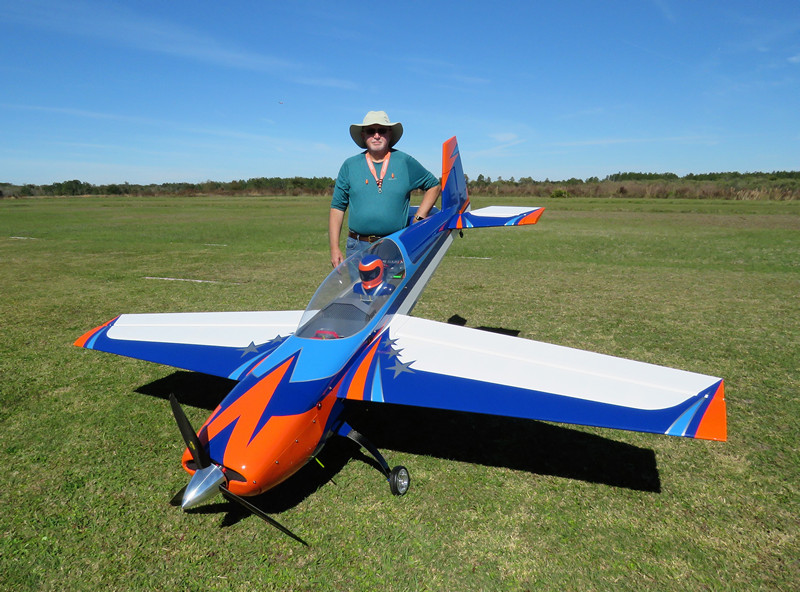
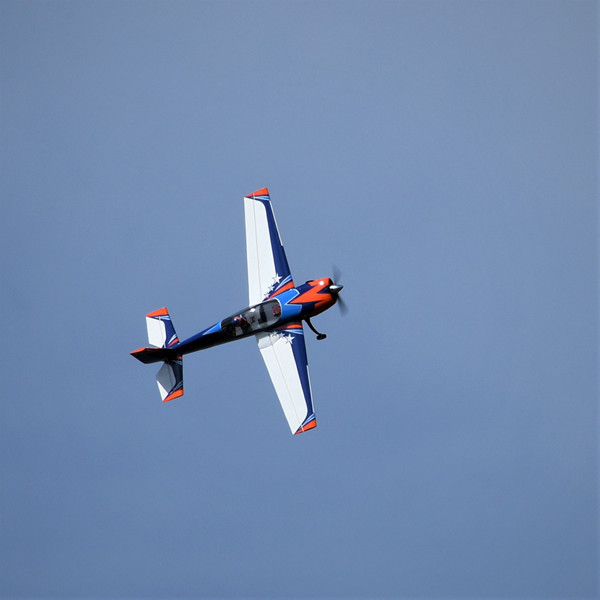
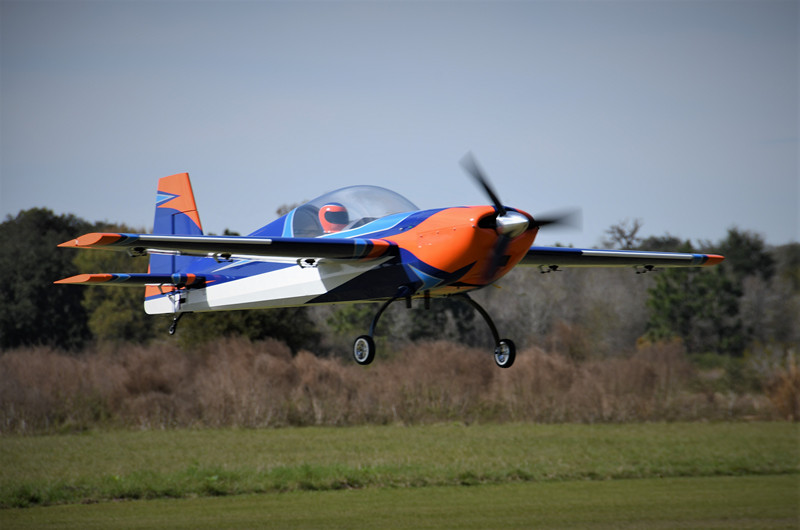
…. and his Krill Extra 330 aerobatic plane, powered by a DA-200L 4-cylinder engine, using a PowerBox Core radio system for guidance. Buddy Greg Baggerly also has the same plane. Lance and Greg show their twin “babies” at the field:
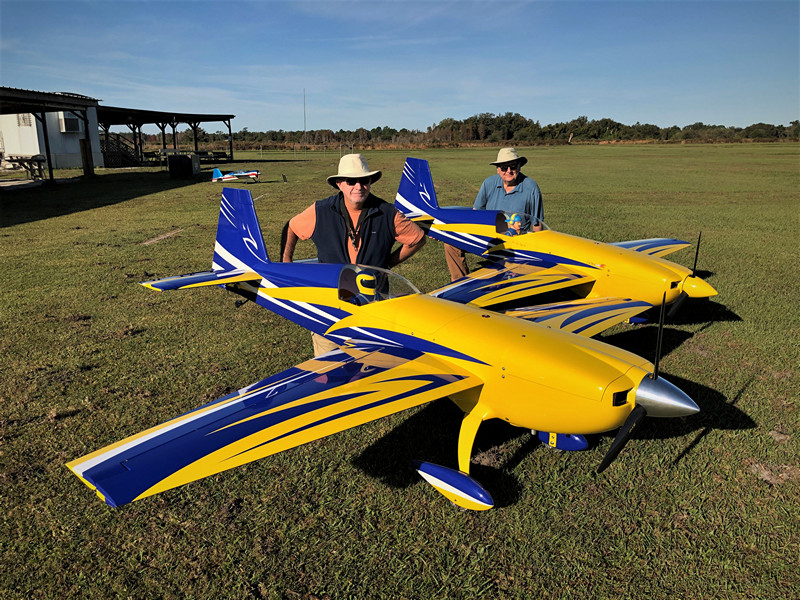
Lou Smith
Lou Smith and his P-41 Warhawk fighter plane:
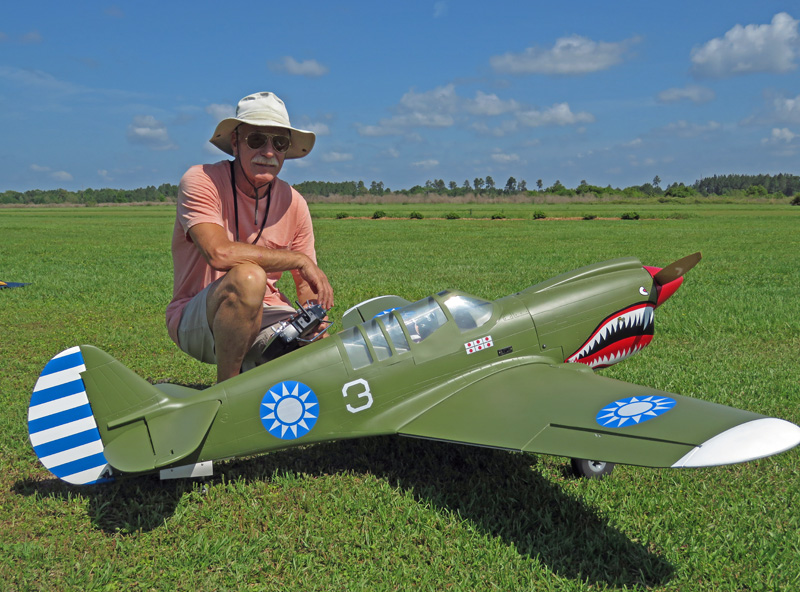
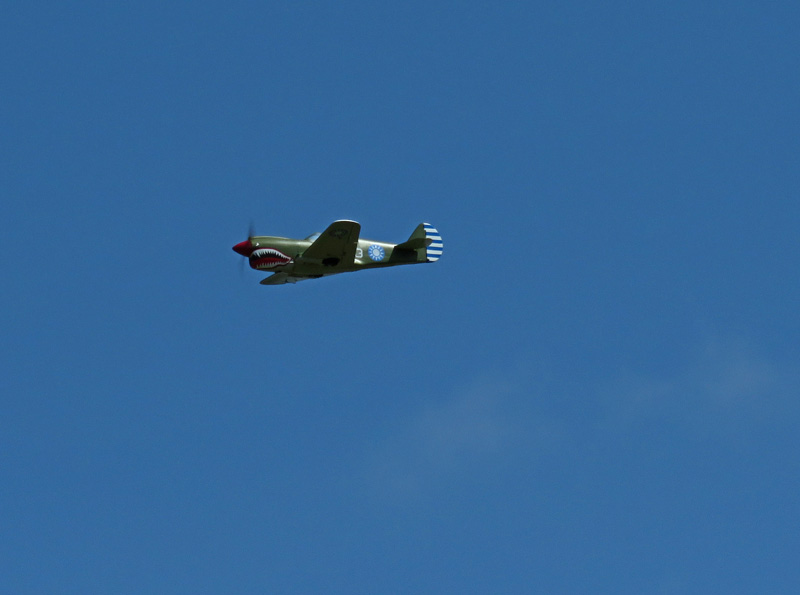
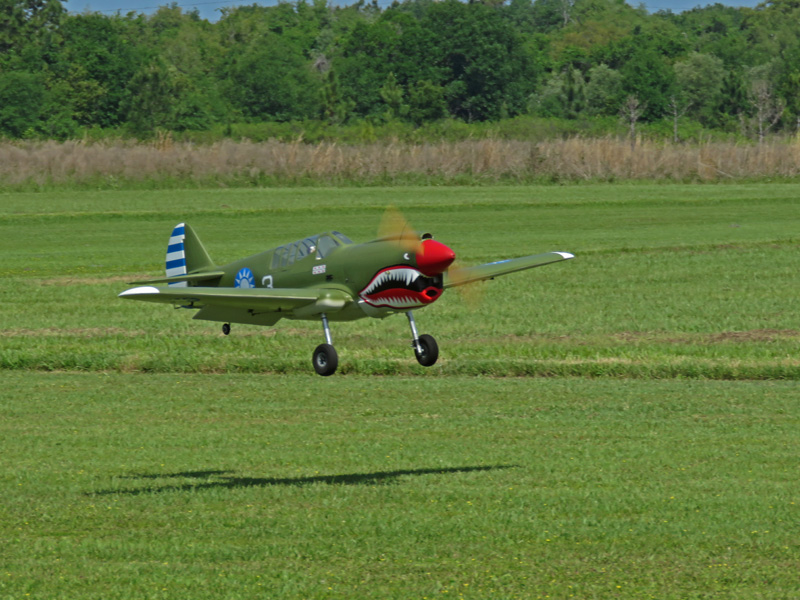
Werner Keil
Werner Keil and his Yak-54 aerobatic plane:
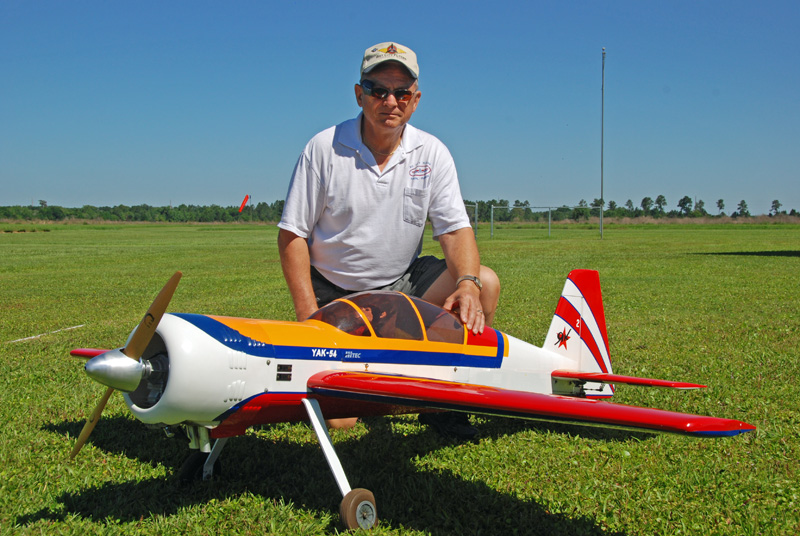
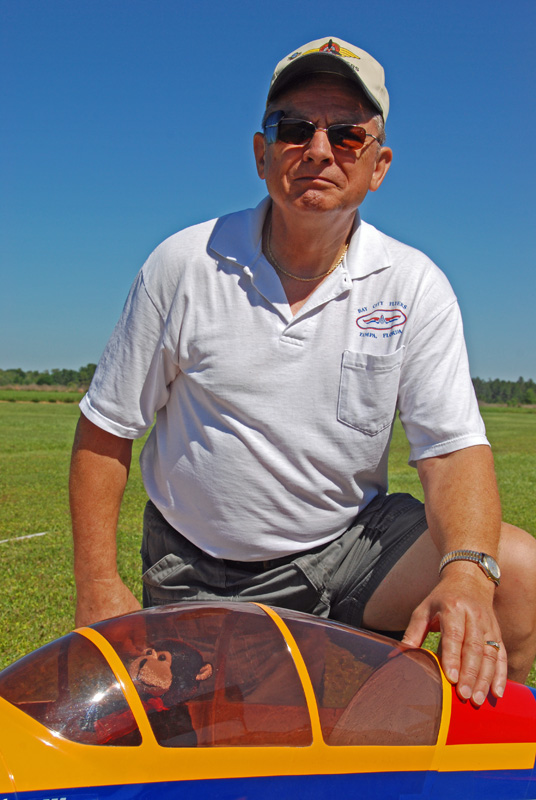
Joe Denicola
Joe Denicola and his mistery fighter plane:
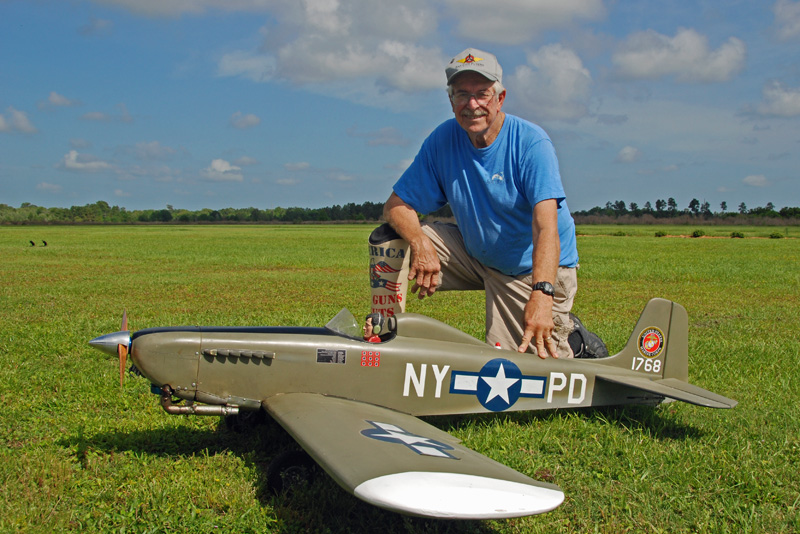
Mike Sperato
Mike Sperato and his Aeroworks Extra 300 aerobatic plane:
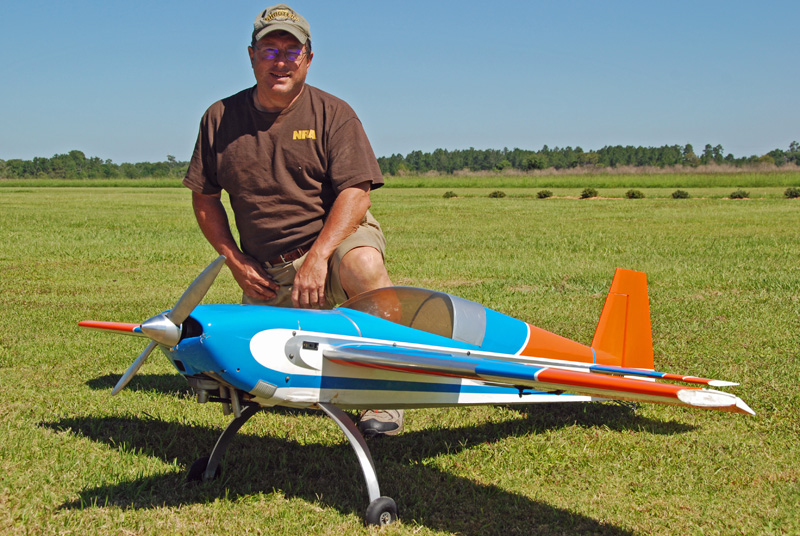
Eduardo and Ana Esteves
Eduardo and Ana sent the “thank you” message below to the Club on May 30, 2015, with beautiful pictures of their award-winning P-47 warbird.
“We arrived safe in Brazil.
I am sending these photos to our club in appreciation for the great support that we have being receiving during our practice flights to Top Gun. We finished in 3rd place in PRO PROP Category.
Please pass them along to Bruce Baltera our President.
Thank you very much and see you in September.
Eduardo & Ana”
P47 CARF
Moki 250cc for power, solo propeller, landing gear by Sierra Giant, finished with Epoxy Klascote
Wingspan 110” Weight 63 pounds
The model was assembled by Dennis DeWeese, also member of Bay City Flyers.
Photography by David Hart:
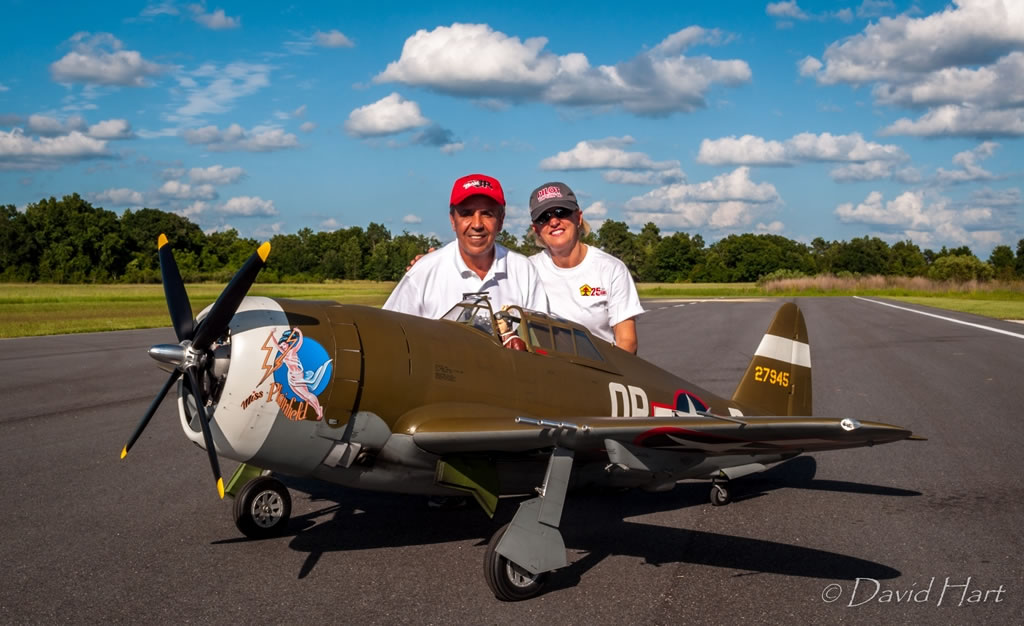
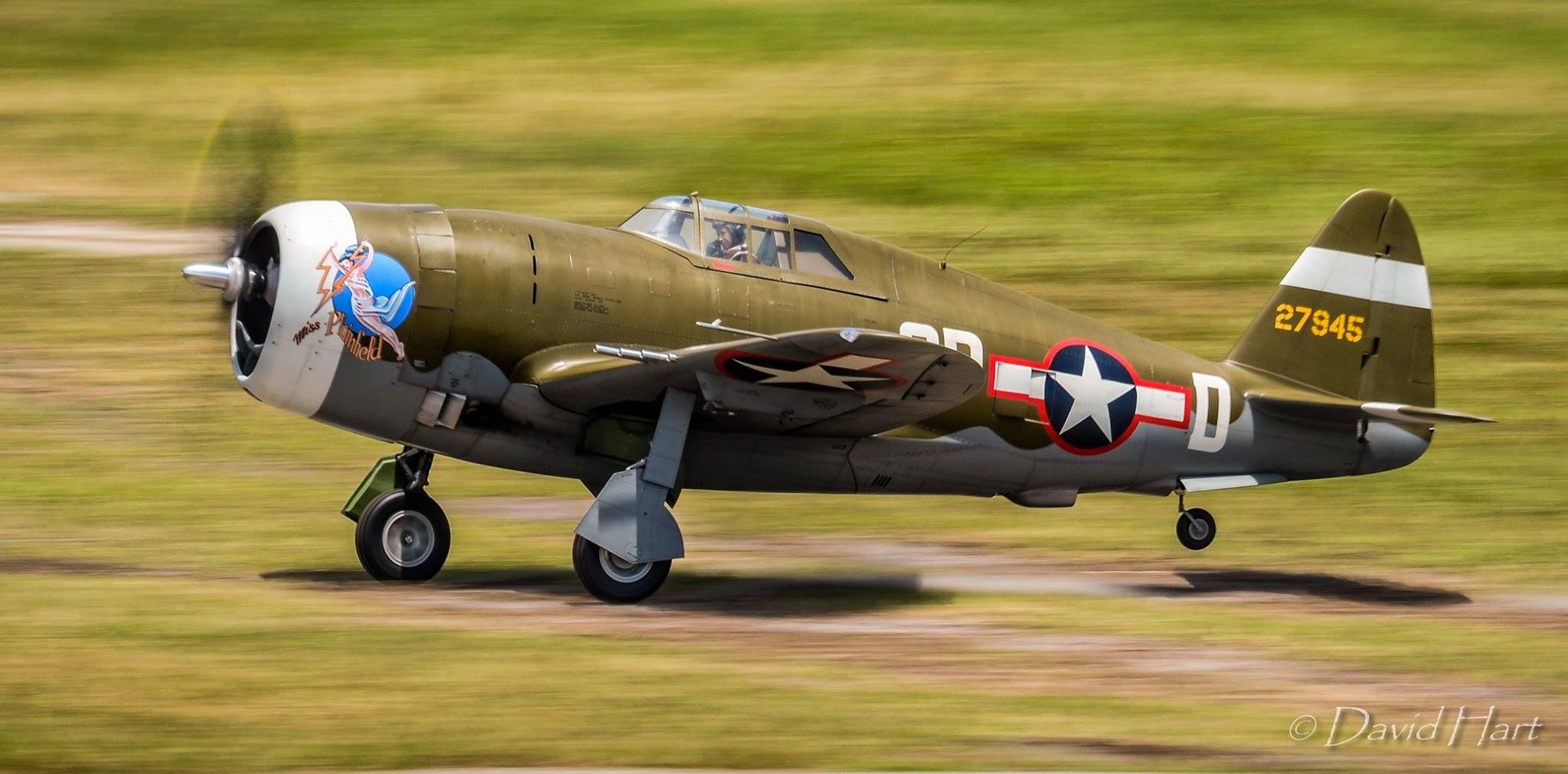
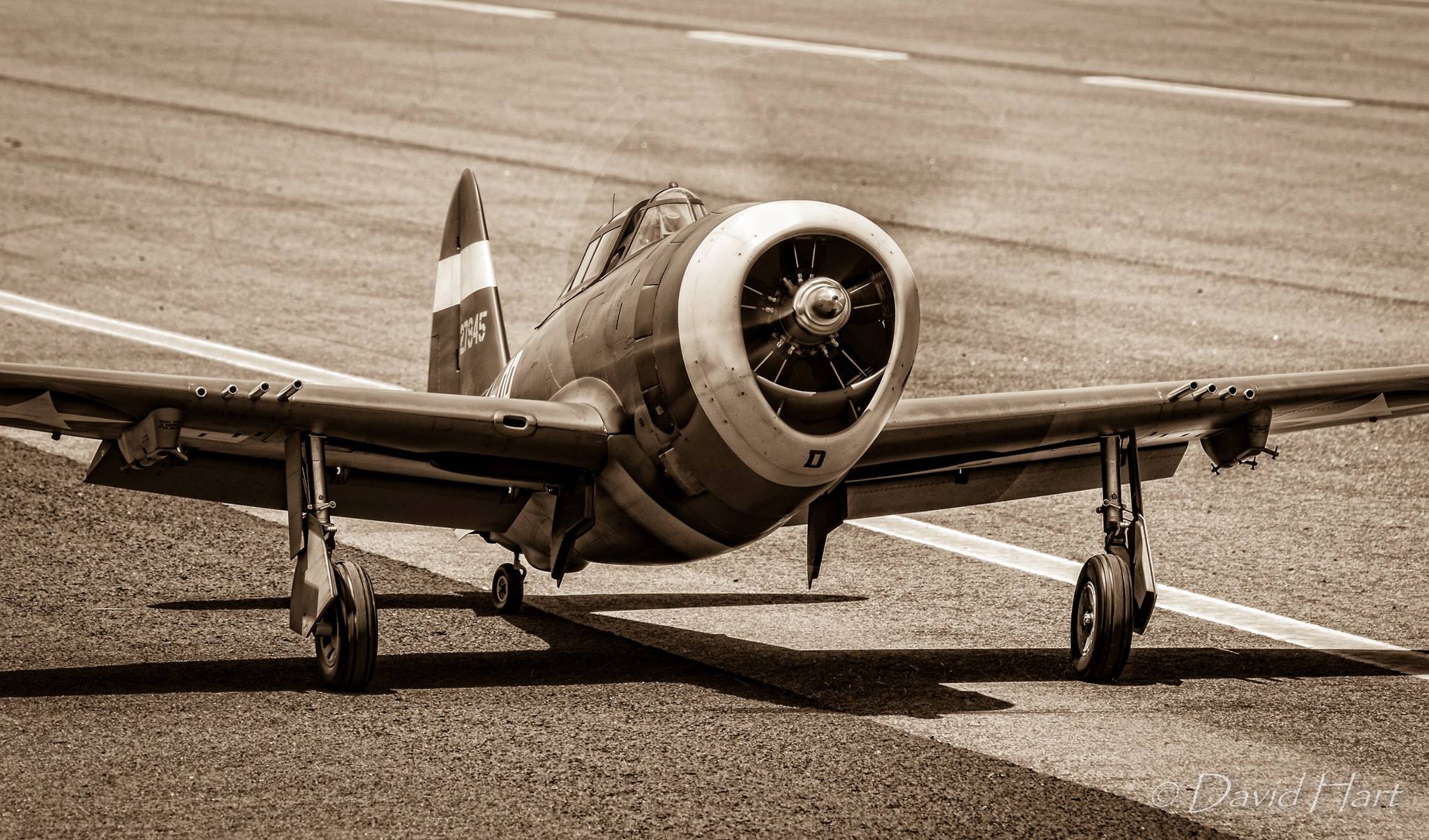
In November 2015, Eduardo sent the following photos, with this message to the Club:
“I am passing the photos of our victory at the 2015 Scale Masters Championship, I finished in first place in the PRO AM PRO category, among 14 competitors. I was proud to represent Bay City Flyers. I want to say thank you again for the great hospitality that myself and Ana always have in the club.
See you guys again in February.
Eduardo & Ana”
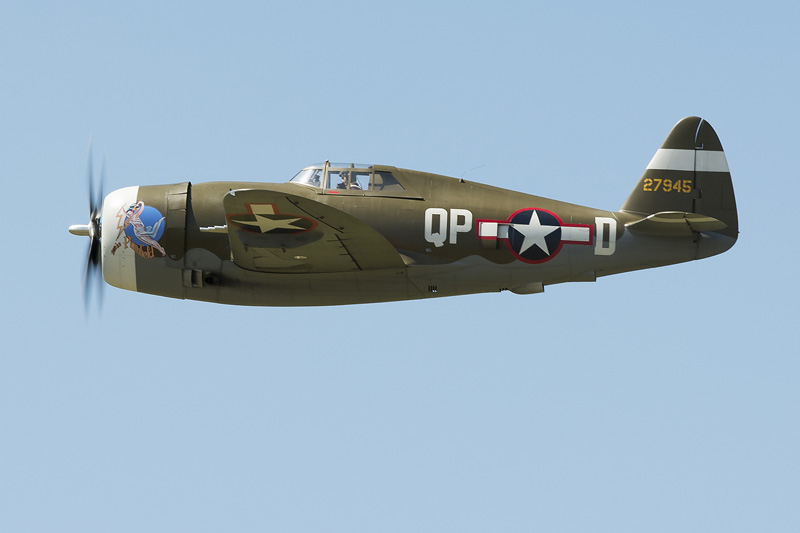
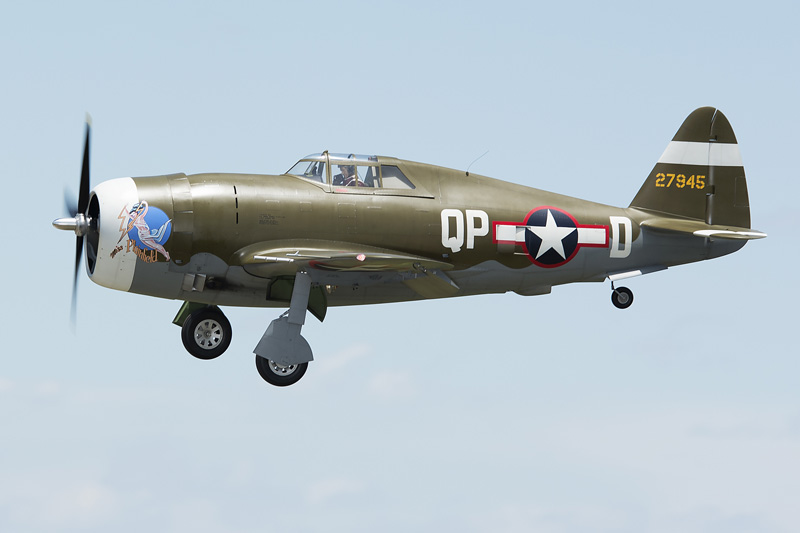
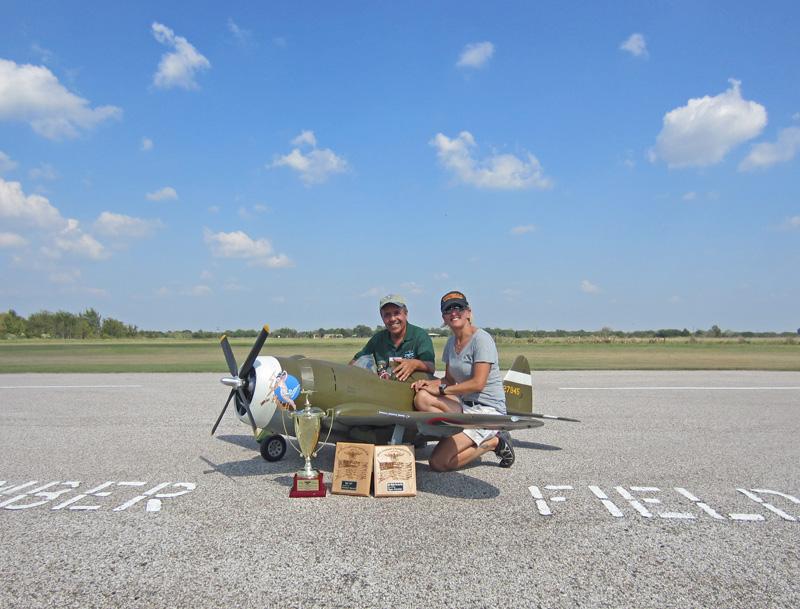
Mike Diesu
Mike Diesu and his conversion from an Old School Model Works kit, Robinhood 25, to the Spirit of St. Louis. Wing span 45 inches. Motor is a Hi Max brushless motor HC C35-16-1130 powered by a 3s 11 volt 2200 mAh Turnigy battery with 10 x 7 E prop. Spektrum AR620 receiver with an Aura 5 Lite Advance Flight Control Stabilizer:
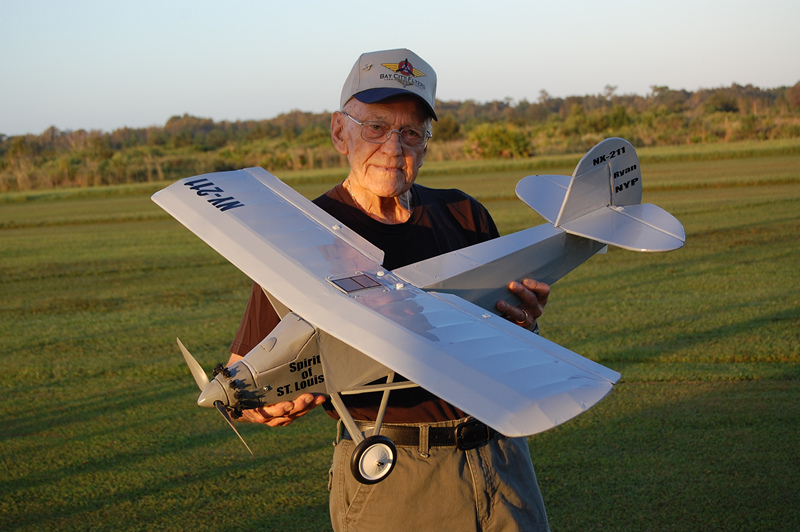
Giovanni Recchia
Giovanni Recchia and his IMAC-competition aerobatic plane, a 123″-wingspan Sukhoi SU-26, powered by a DA-170 2-cylinder engine, and using a Futaba T18MZ-WC radio system for guidance:
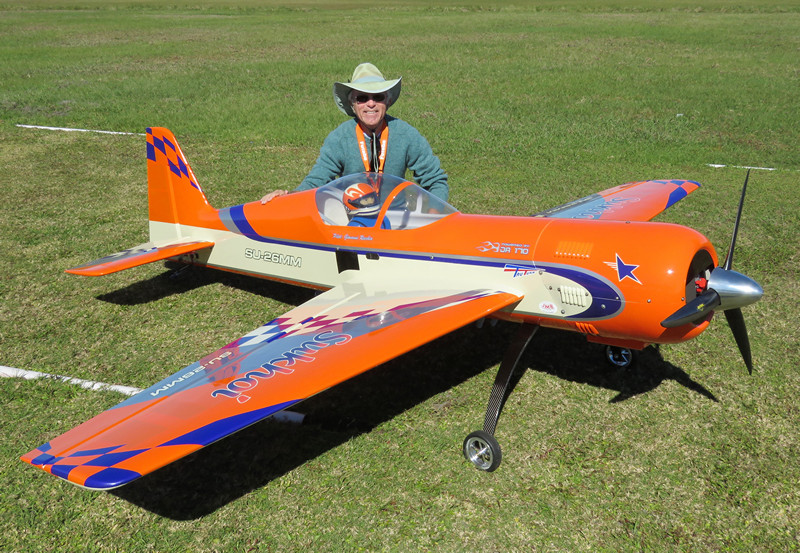
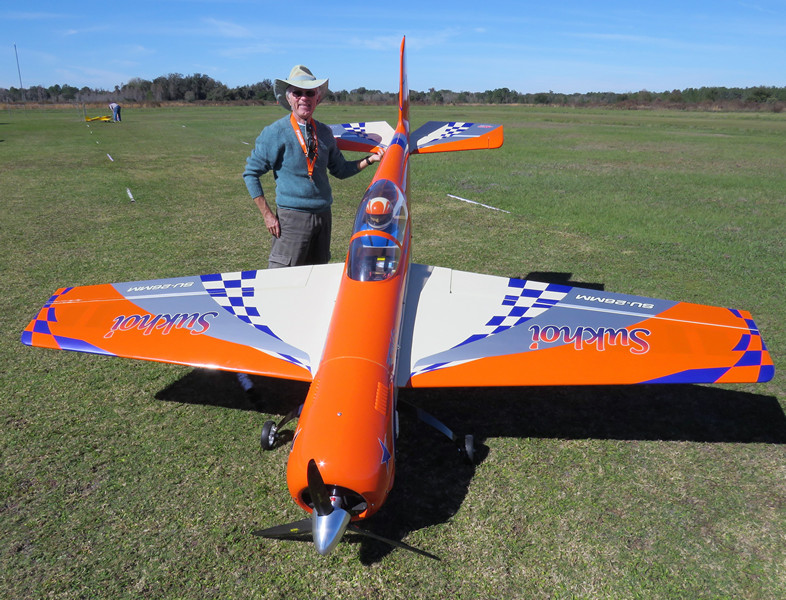
Jim Slaughter
Jim Slaughter and his Warbird airplanes.
The light colored biplane is a Maxford USA 20% scale SPAD XVIII, powered by a CCRC-Pro 26cc engine and controlled with a Futaba radio. The black and white triplane is a Balsa USA 25% scale Fokker DR1, powered by a Zenoah G-26 engine and controlled with a Futaba radio. Photography by Roger Cherry.
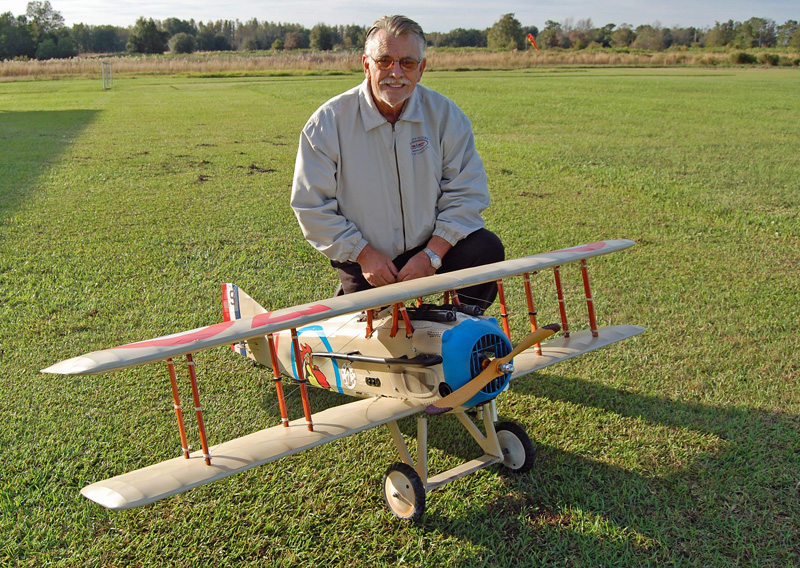
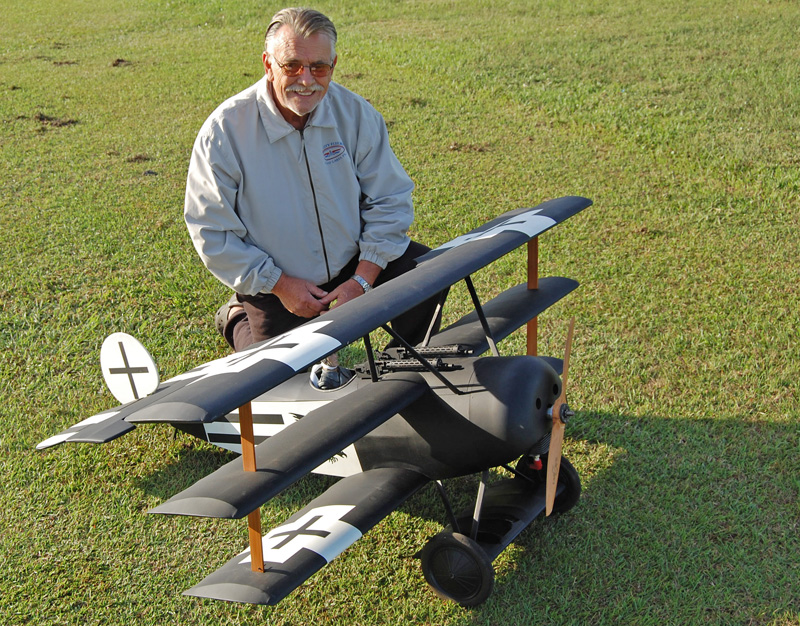
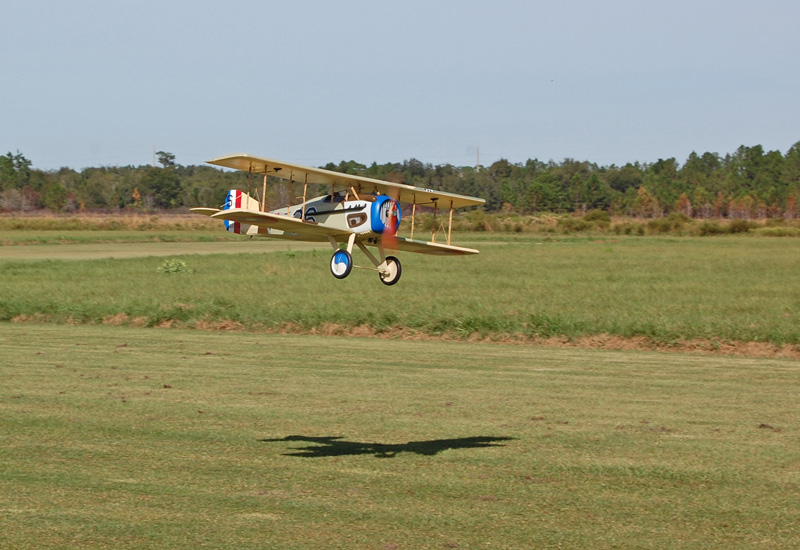
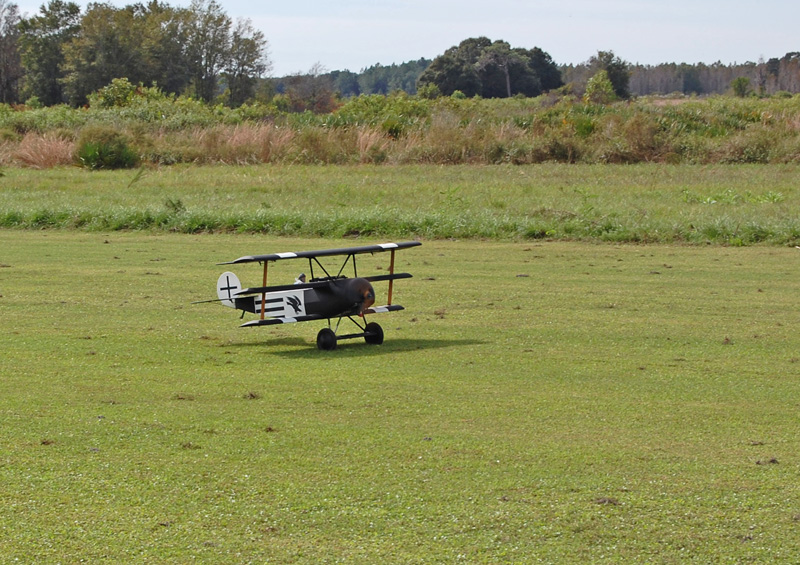
Below are photos of Jim’s Fokker DVII World War I airplane and BF-109 World War II airplane:
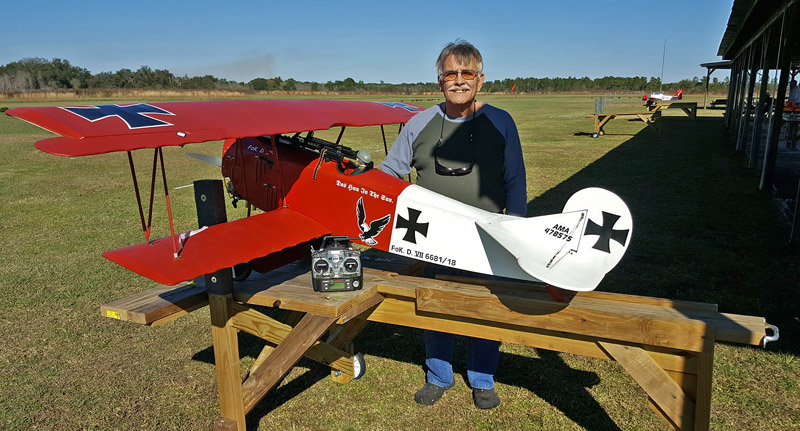
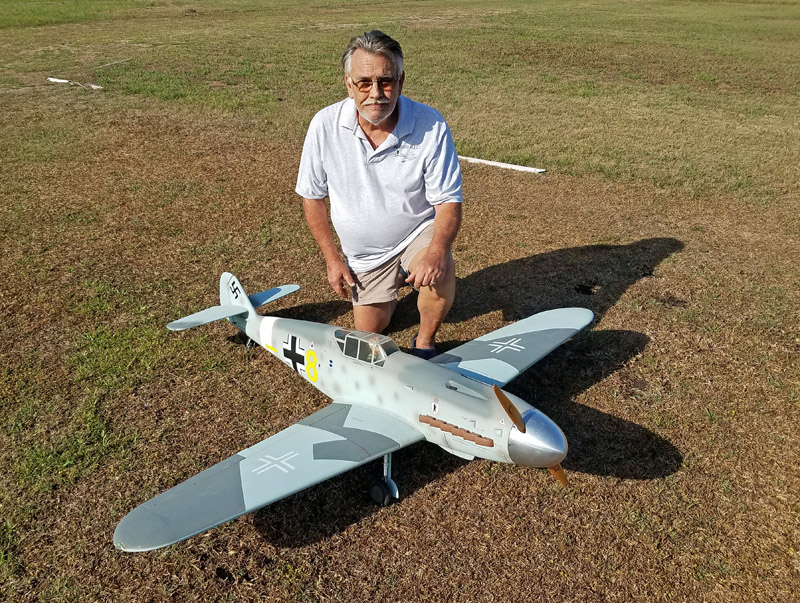
Roger Cherry
Roger Cherry and buddy Ron Haynes, with their almost twin Telemasters:
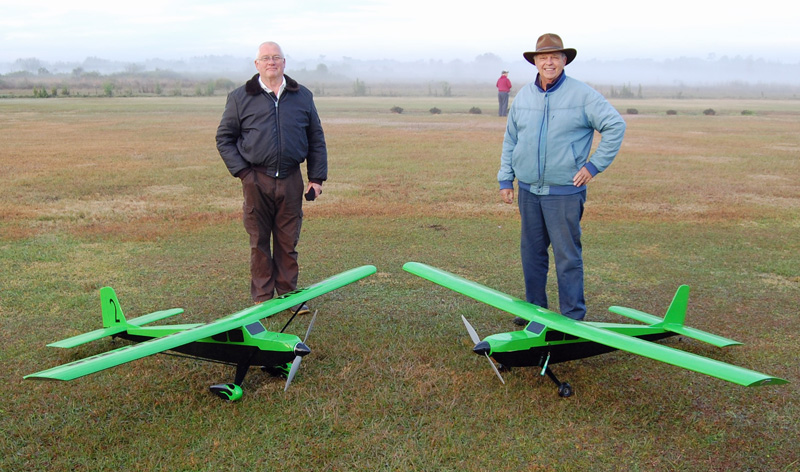
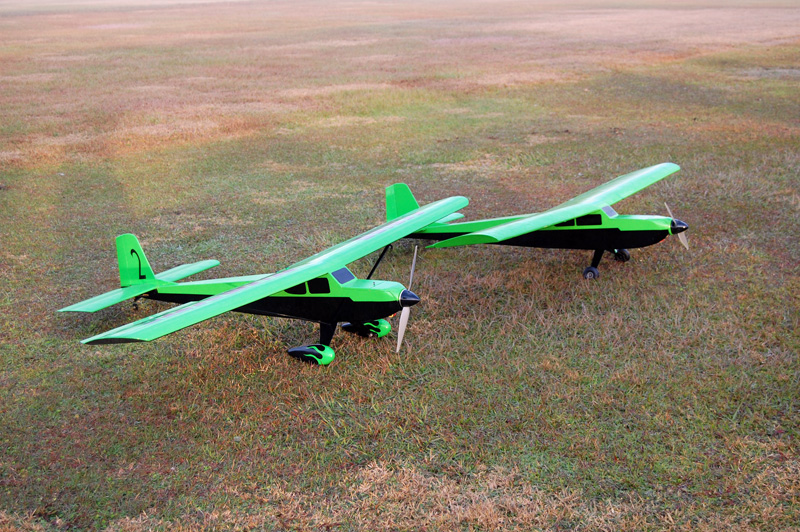
Dick Kosby
Dick Kosby getting his Giant U-Can-Do 3D aerobatic plane ready for flight, with help from Werner Keil:
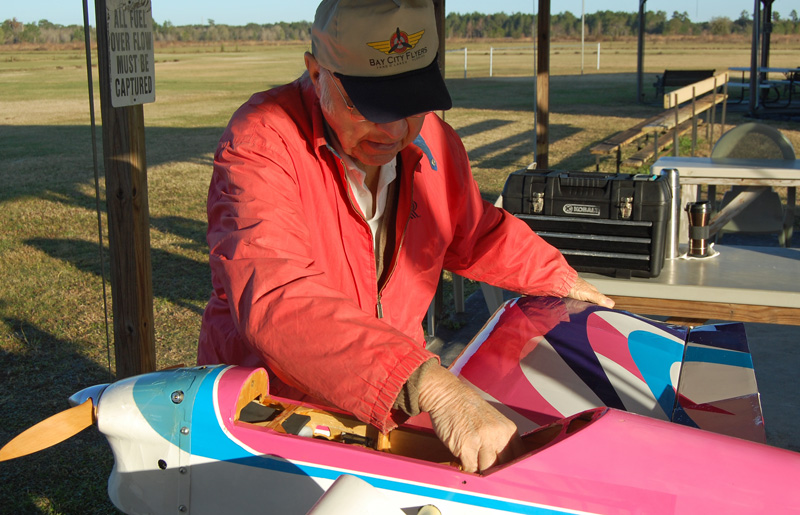
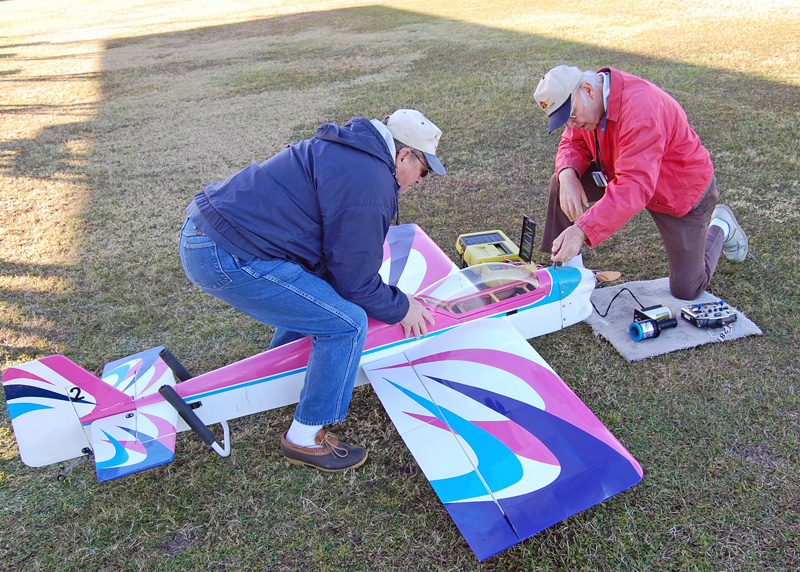
In memory of Dick Kosby:
…here are a few words by President Werner Keil:
“On January 28th we lost a club member, a very dear friend of mine and many club members, Dick Kosby. He had a lot of health issues over the last year, which really took a toll on him. It finally got so bad that he lost the will to handle it. We will surely miss his humor and, at times, stubbornness, but we all had great times and memories to keep, God bless his soul.”
…and a photo of Dick at the old field in 2005:
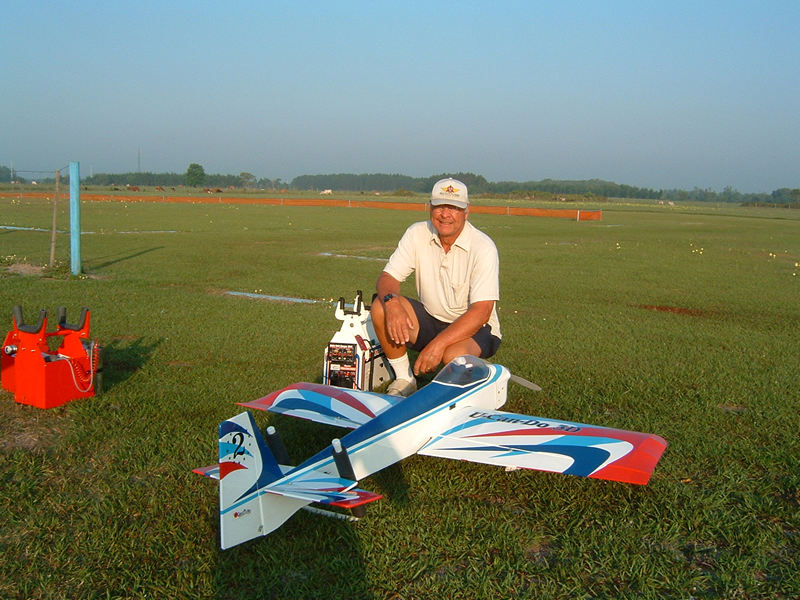
Bob Mann
Bob Mann and his 122″wingspan Edge 540 aerobatic plane, powered by a DLE 170 gas engine:
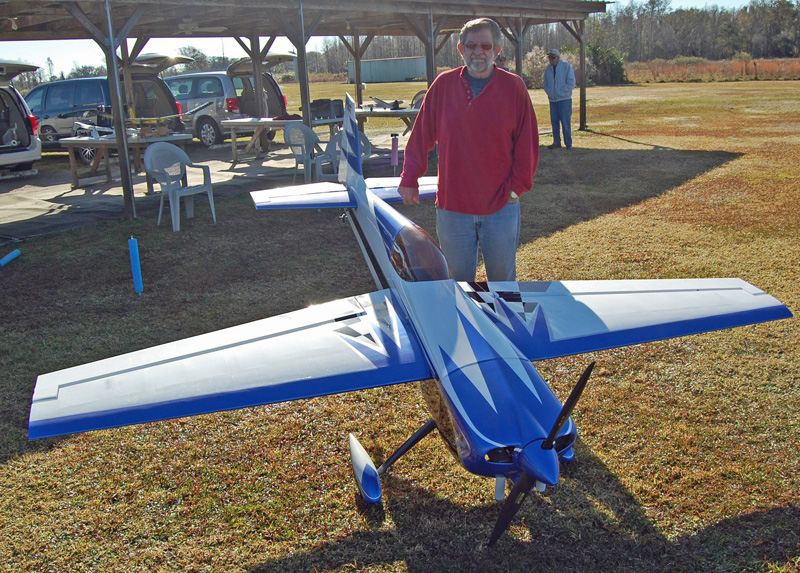
John Hartley
John Hartley and his DC-3 twin-engine military transport plane. Built by Larry Utt, from a Top Flight kit, the model uses two Turnigy G34 Motors, two 60 A Speed Controllers, and Robart landing gear:
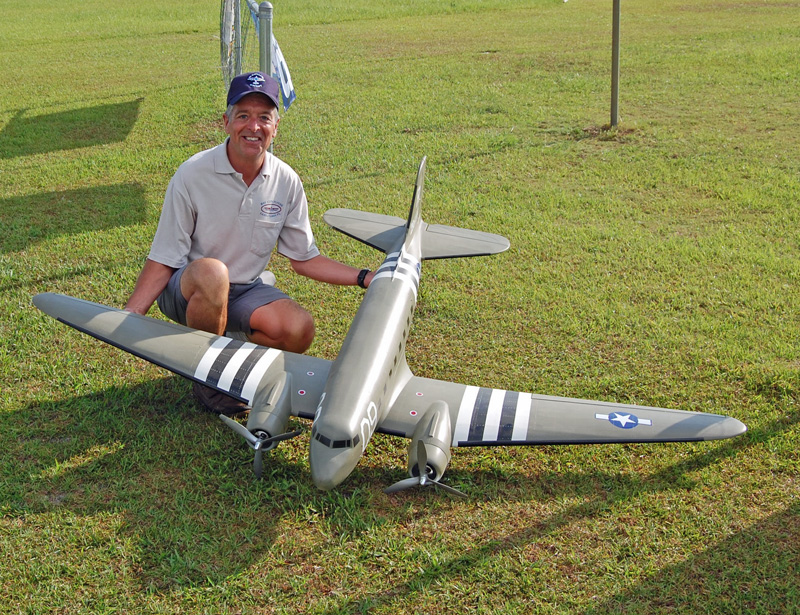
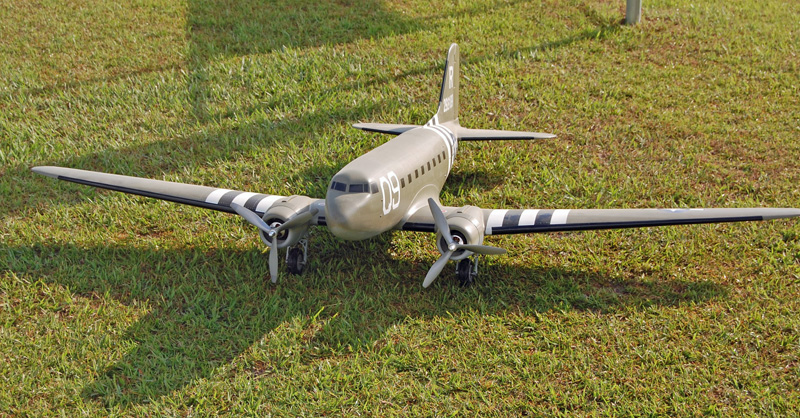
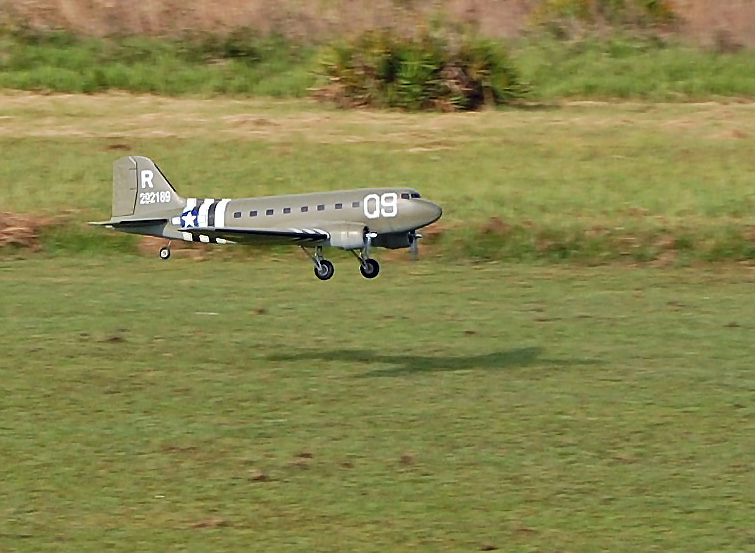
Frank Tiano
Frank Tiano and his newest models, a US P-47 and a Japanese Zero:
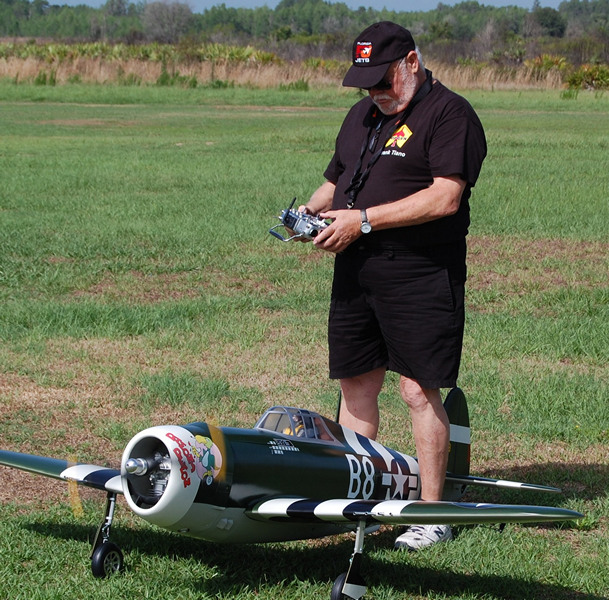
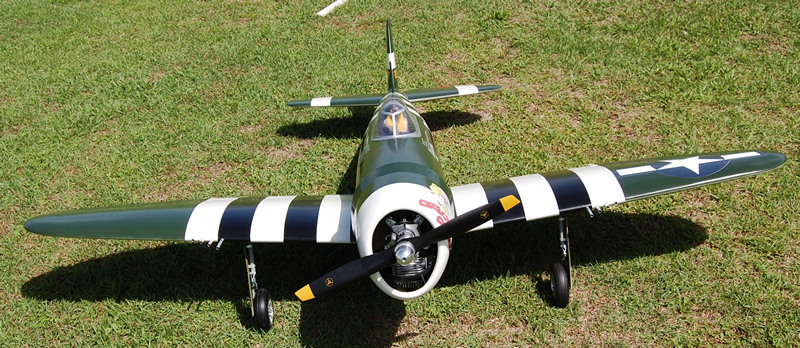
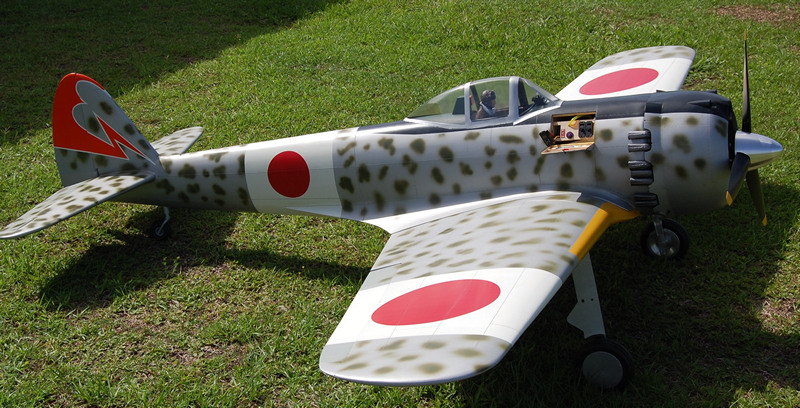
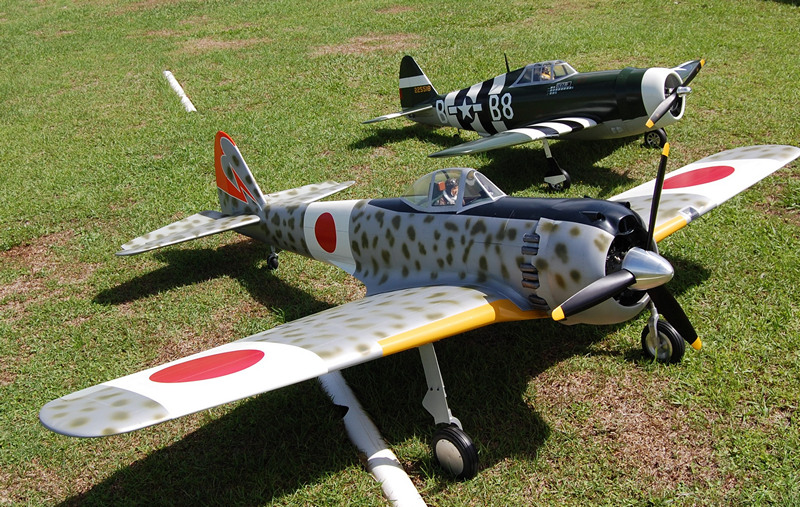
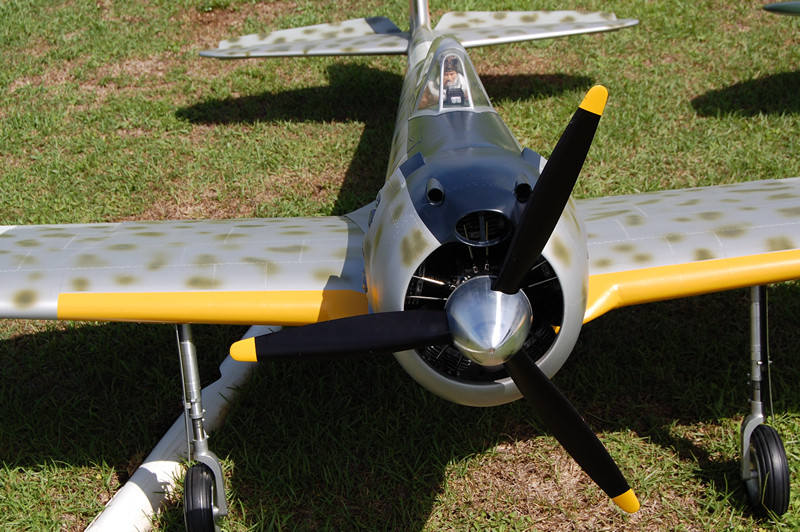
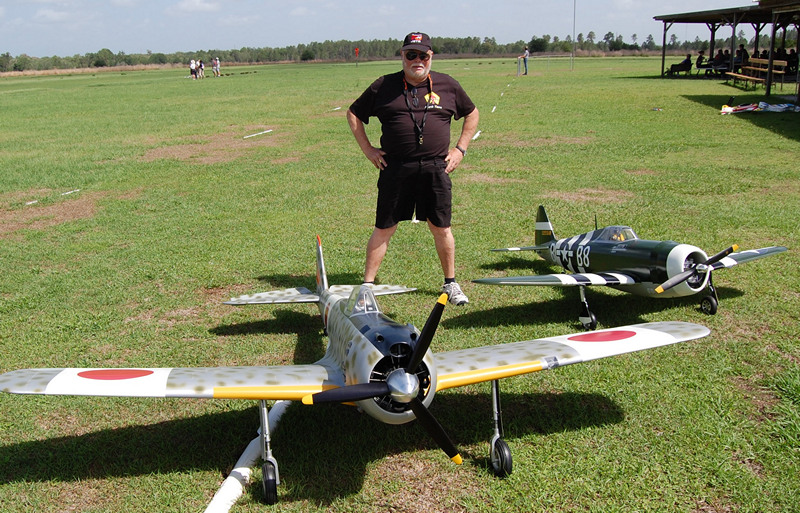
Chip Greene
Chip Greene and his Grumman F7F Tigercat:
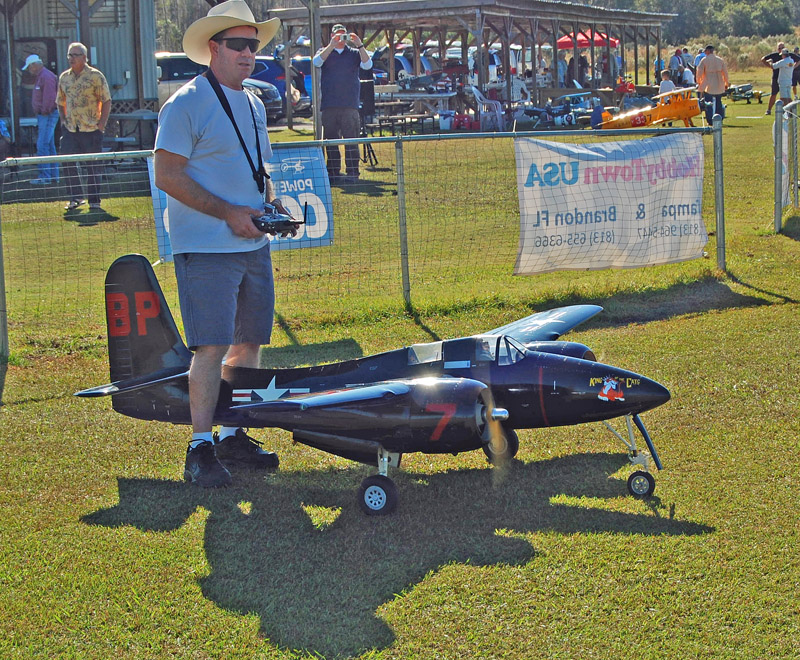
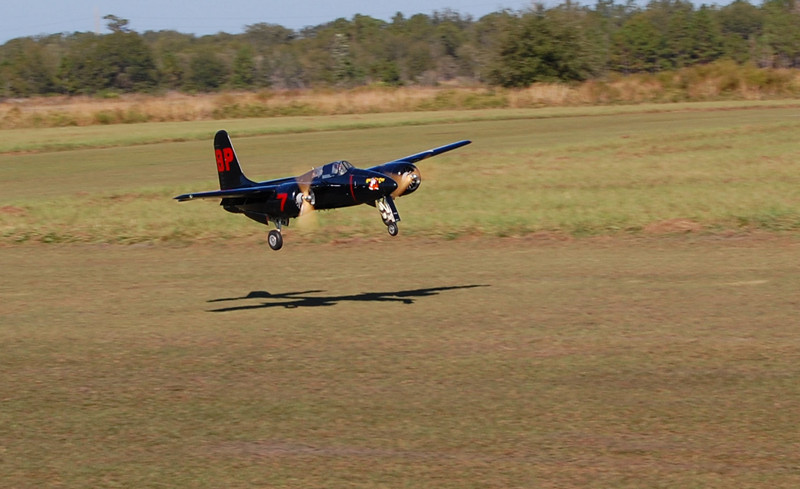
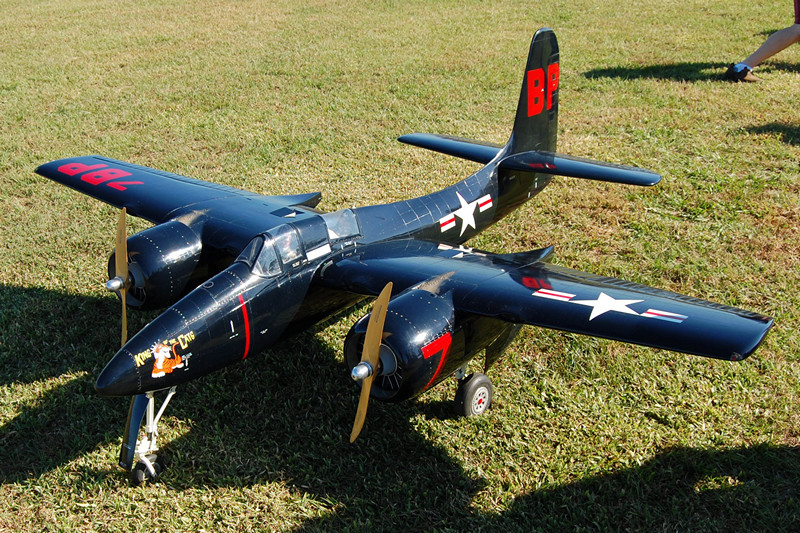
Jim O'Brien
Jim O’Brien and his Obsession precision flying plane, from Goldberg. The model is powered by a DLE-35 engine and uses a Spektrum radio system, with telemetry, for guidance:
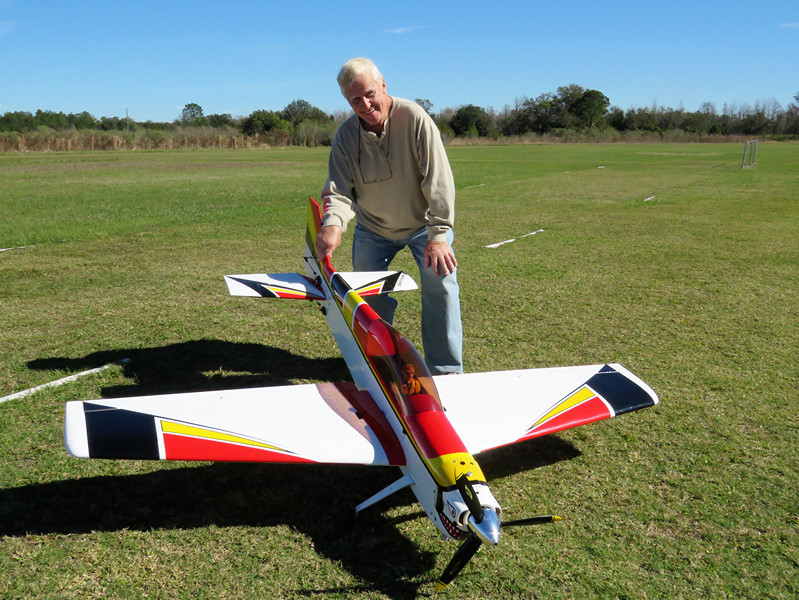
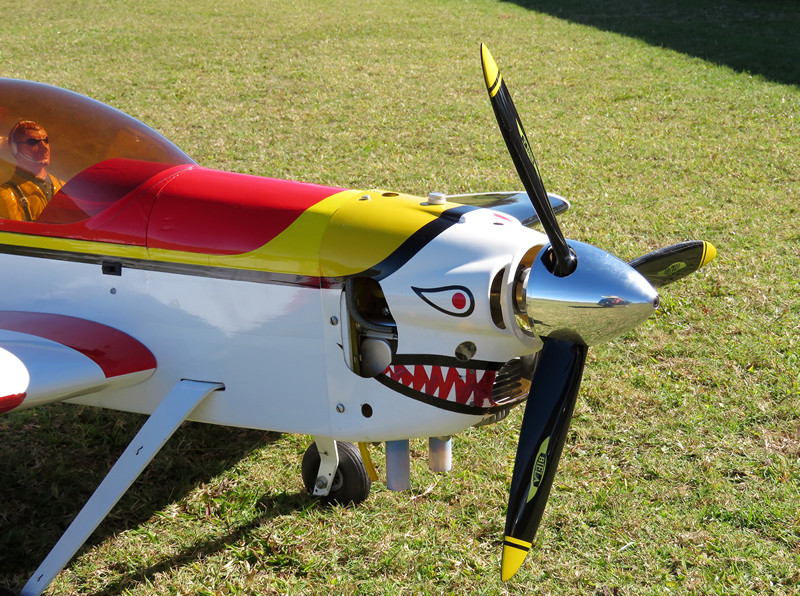
Rene Alvarez
Rene Alvarez with his Stearman biplane:
In Rene’s own words: the model is a Stearman from Ziroli, 87″ wingspan, powered by a G62 with spring starter with a fake seven cylinder engine. The weight is 30 lbs and it is covered with Solartex (Natural color) and painted with Klass-Kote. All the insignias are airbrushed and the nomenclature are dry transfers from Aeroloft, specifically made for this model, which is scale after a full scale in the California museum and it is actually flying. The covering also has simulated stitching and covered with Pink-it, the screws are miniature small screws to simulate the panels around the cockpit. The landing gear and wheels are from Sierra, propeller is from Falcon. The baggage compartment behind the cockpit has the switches for the receiver and position lights. The radio is an old JR PCM 10 converted to 2.4 system with a Spectrum receiver and A123 battery. The model has the same characteristics of the full scale plane, not a ball of fire, but with graceful maneuvering, and it has to be dived to enter certain maneuvers, just like the full scale.
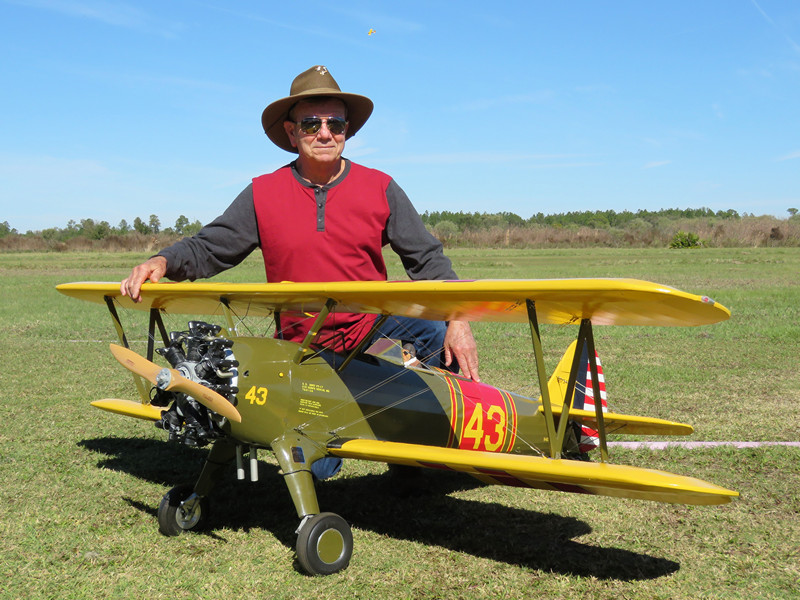
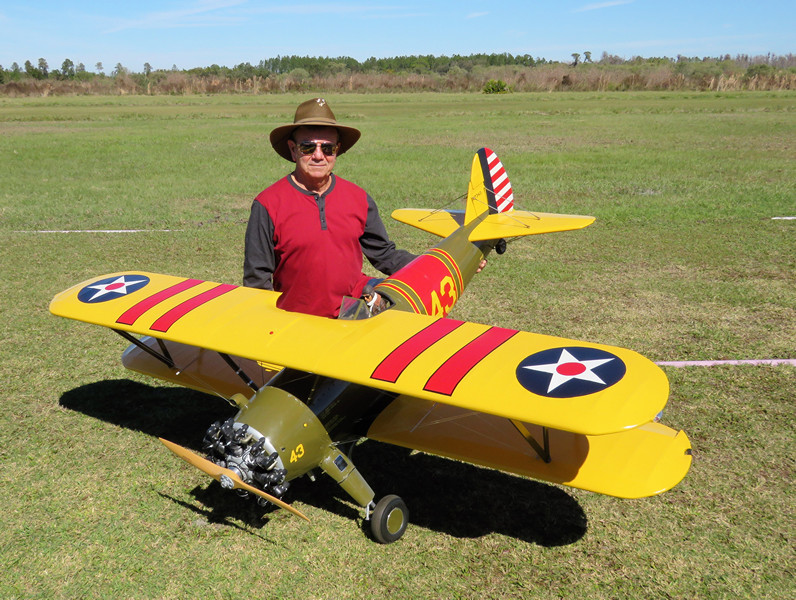
….and his warbird, an F86 Corsair from Meister Scale, with a 100″ wingspan.The F86 is a scale replica of Pappy Boyington’s famous plane. It is powered by a Moki 180cc five-cylinder engine, with a three blade Solo Prop. The gear is Sierra Gear with sequencing gear and door. It is painted with Klass-Kote and has simulated rivets and screws with panel lines. All markings are airbrushed, except for the nomenclature which is dry-transfers from Aeroloft. The plane has a complete cockpit, with a actual Pappy Boyington 1/5 scale pilot replica and sliding canopy activated by radio. A JR 9303 radio with JR receivers and a SmartFly power expander with four A123 batteries (ignition, fuel pump,and two receivers) powers it. The Corsair weights 49 lbs. It won best recognition at the 12 O’Clock High in 2014.
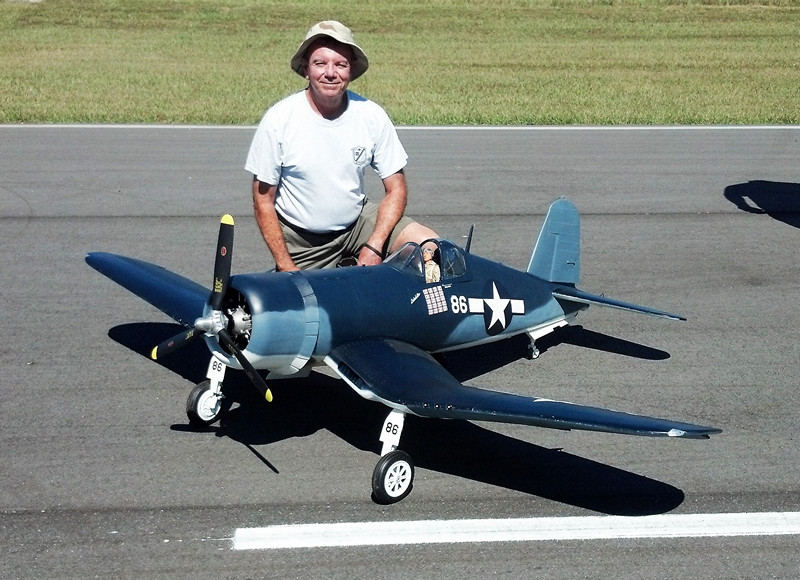
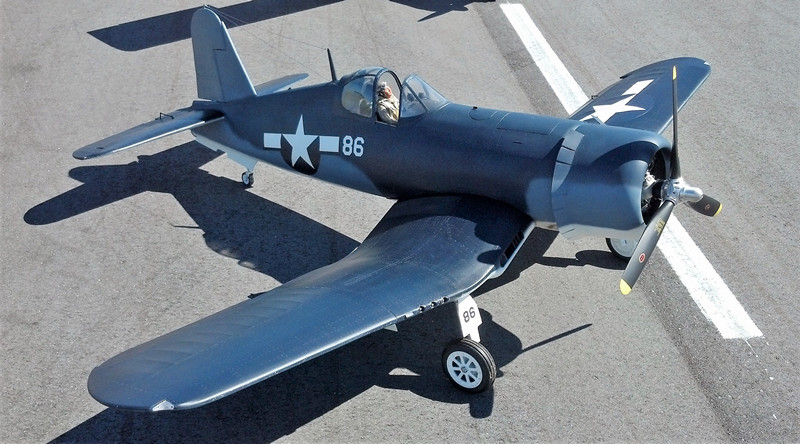
….and another warbird, a recently finished P-36 Hawk. The model is a replica of the full scale Curtiss P36 currently at the Warbird Tails at the San Diego Museum. The model is covered with Flite-Metal to simulate the real aluminum skin. It also has the panel lines, the rivets and fastener screws. The canopy is manually operated with a full cockpit. The yellow paint and markings are painted with Klass-Kote, the Hawk insignia is dry transfer from Aeroloft. The main and tail gear is from Sierra, with functional flaps. The engine is an RCGF 50cc Twin. The model has a weight of 26lbs. with all the controls and switches hidden.
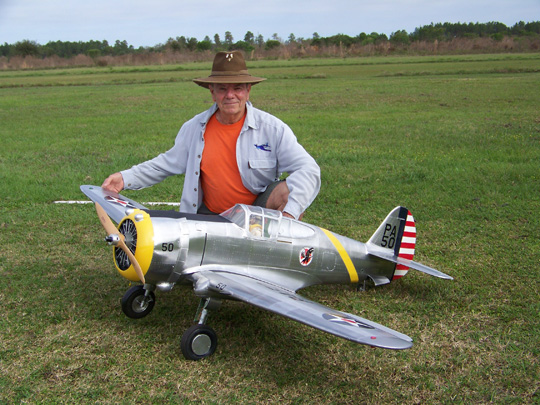
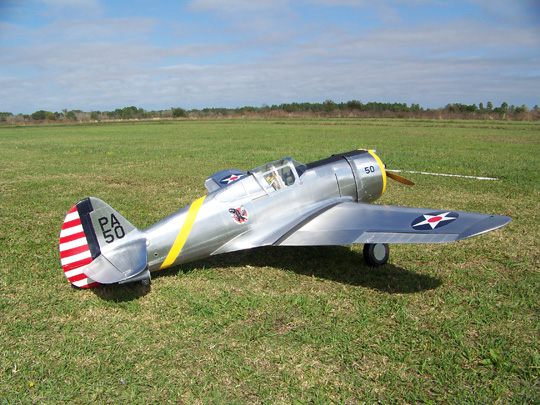
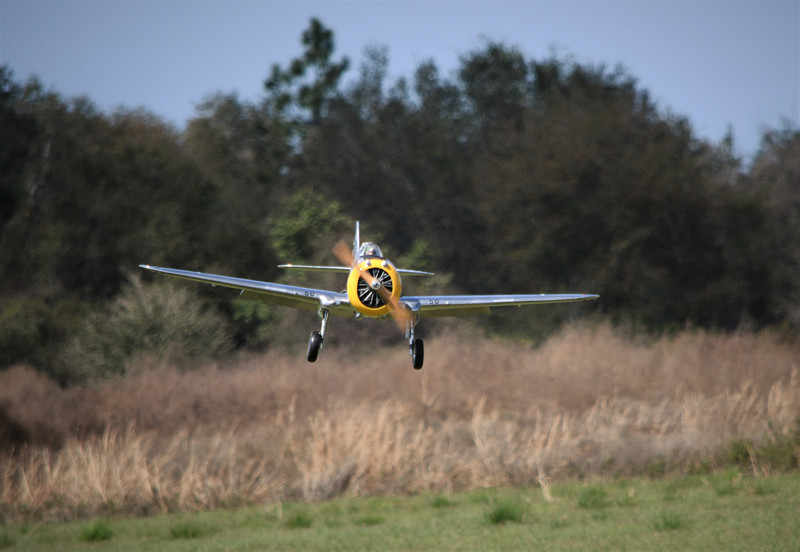
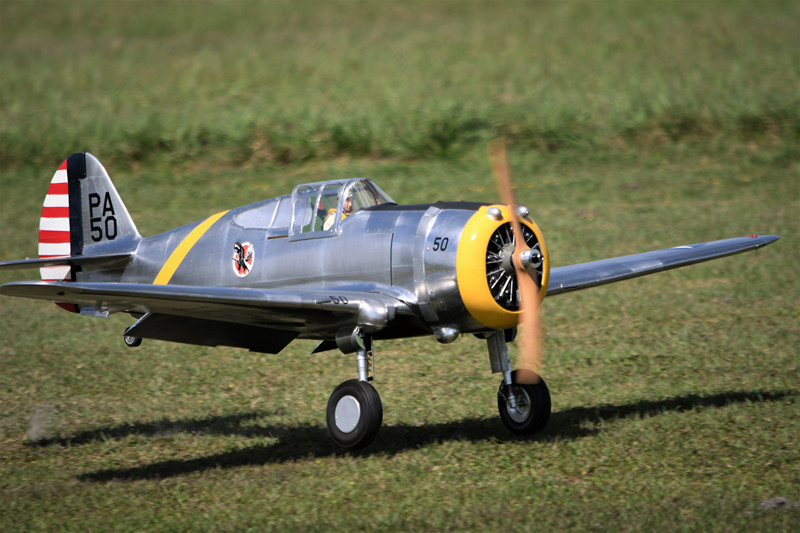
….and his latest aerobatic plane, a 35% Yak 54 with radial Moki engine. Thanks to Rene patient and skillful re-covering job, notice the awesome transformation from the original military color scheme to a beautiful sunny look.
Here is the “before”:

and here is the “after”:
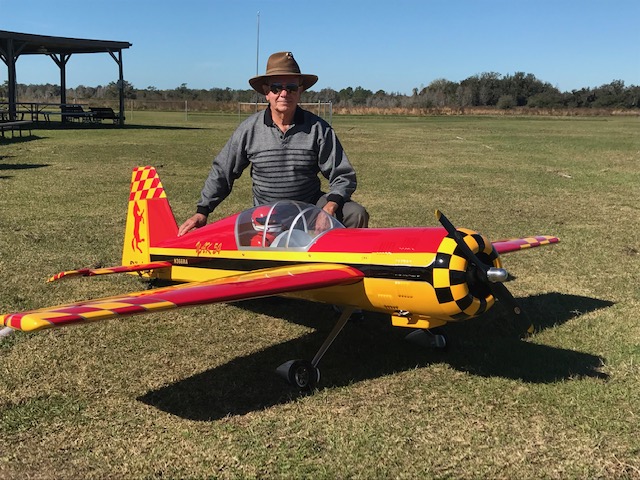
Joseph Cernava
Joseph Cernava with his AT6 Texan:
From Joe’s writing: This is a 1.5th scale version of the Navy’s SNJ 5 WWII-era trainer. #77 was based at Pensacola Fl. naval air station in 1943. The kit is from Yellow Aircraft Company. The wingspan is 101 inches and weight is 38 lbs. The plane is powered with a Saito 90cc gasoline radial engine. Radio system is Futaba 16SZ. The plane was built in 2008 and has 132 logged flights. It has a scratch-built, fully detailed cockpit, complete with sliding canopy, flaps and retracts. In 2009 and 2010 Joe flew this model off the exact same runway as the full scale did in 1943. This was an R/C invitational Gathering of Eagles event air show, hosted at the Naval base two years in a row, on the Columbus Day weekend holidays. The full scale plane #77 is now privately owned and is still flying at air shows around the country.
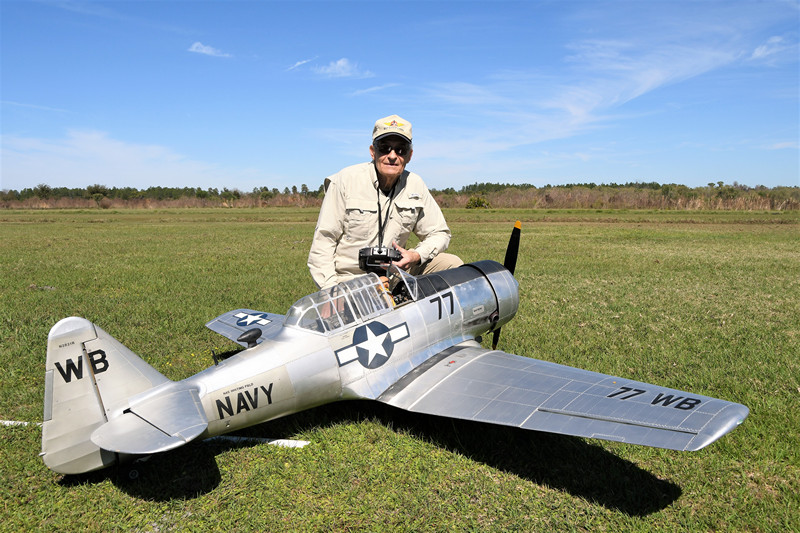
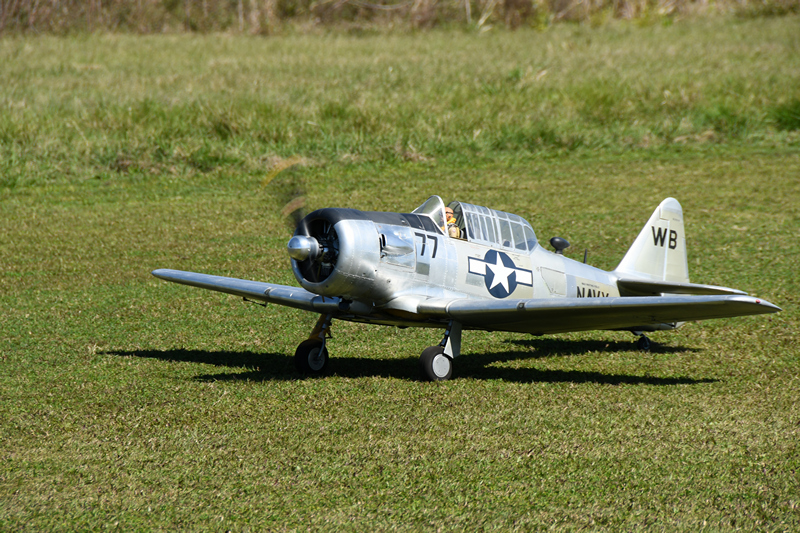
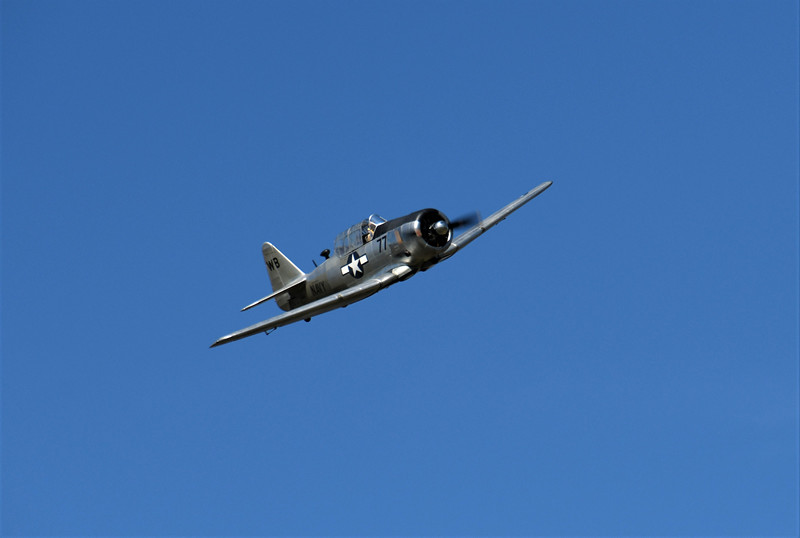
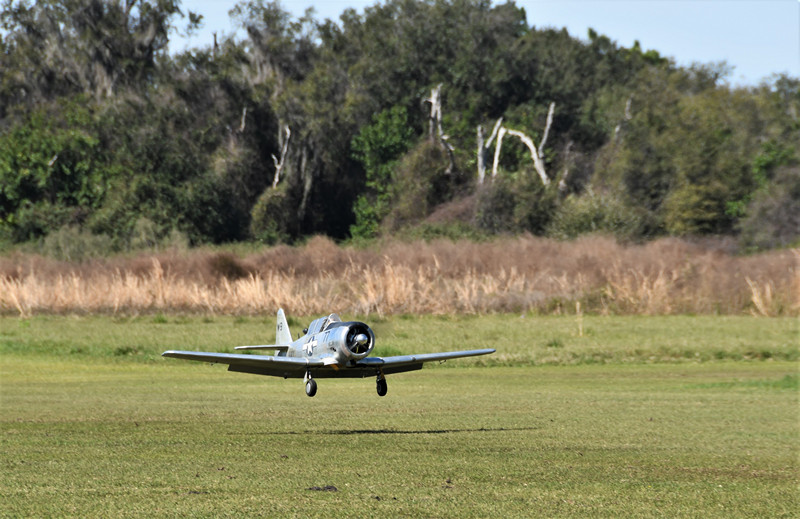
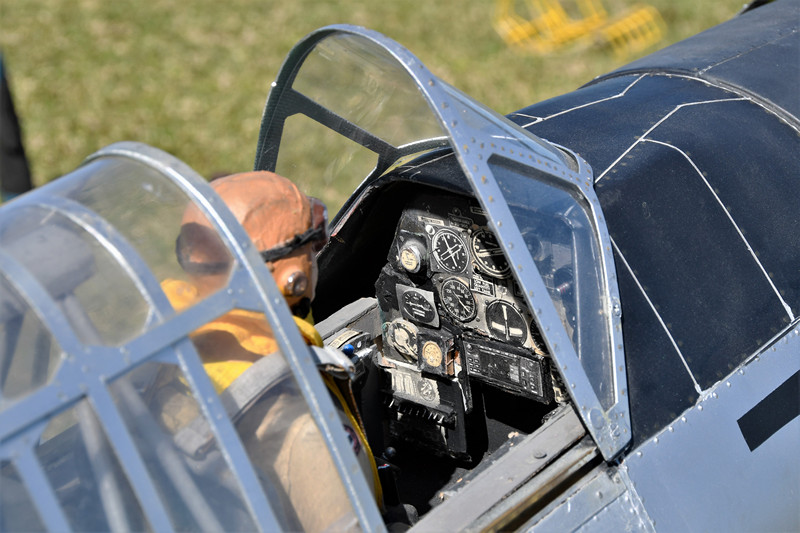
Jim Conley
Jim Conley with his F4U Corsair:
Model: Top Flite Giant Scale F4U Corsair Kit. Wingspan: 86.5”; wing area: 1376 sq in; weight: ~25 lbs; wing loading: ~42oz/sq ft; length: 70”. Radio system: Futaba 7C; engine: DLE 55. The plane was built in the timeframe from January ’08 to December ’09 and is finished with Monokote and house paint. First flight on December 2009.
